






Editor James Drury Sub Editor
Michael Muldoon
Designer Philip Millard
Contributors
James Drury Sabine Funk
Christof Huber
Chris Kemp Holger Jan Schmidt Morten Therkildsen
Katharina Weber
Cover image
Nature One 2022
IQ Magazine Unit 31 Tileyard Road London, N7 9AH info@iq-mag.net www.iq-mag.net Tel: +44 (0)20 3743 0300 Twitter: @iq_mag
Welcome 4
The Big Return to the Fields 6
Festival Focus: Melvin Benn 14
European Festival Survey 2022 15
Festival Focus: Stephan Thanscheidt 23
Going Green in the Fields 24
Festival Focus: Tamás Kádár 27
Fighting Climate Change on All Fronts 28
Creating Sustainability Out of Nothing 33
Festival Gallery 2022 35
YOUROPE: We’re in This Together 36
Festival Focus: Fruzsina Szép 42
Perfect Partnerships 44 Festival Focus: Goc O’Callaghan 49
Is it Time to Challenge the Foundations of Our Festivals? 50
The Show Must Go On – But How? 52
The Festival Season 2022: Experiences, Challenges, Education 54
Festival Focus: Anna Sjölund 58
YOUROPE

The European Festival Association, Auguststr. 18, 53229 Bonn, Germany
The European Festival Report is released as part of YOUROPE's three-year project 3F – Future-Fit Festivals
3F – Future-Fit Festivals project lead: KME Karlsruhe Marketing und Event GmbH | www.karlsruhe-event.de
Co-funded by the European Union. Views and opinions expressed are however those of the author(s) only and do not necessarily reflect those of the European Union or the European Education and Culture Executive Agency (EACEA). Neither the European Union nor the granting authority can be held responsible for them.
For much of the European festival industry, 2022 was the first full year back – and what a year it was. The sheer joy on artists’ and audiences’ faces at being able to come together again after a long and arduous hiatus was incredible to experience.
As you’ll discover in the European Festival Report, it’s been a year of ups and downs – the spectre of Covid is not yet behind us, and there are plenty of challenges resulting from everything we’ve all been through. But there is also much to celebrate and that’s thanks to the creativity and hard work of everyone involved in festivals.
Our European Festival Survey highlights just what it took to get through the last few years and addresses some of the challenges ahead for next year. Find out how your experience compared with others from page 15. It also demonstrates just how important the sector is financially, as we take a look at some of the economic impact studies events have carried out.
We’re delighted to be working with YOUROPE, the European Festival Association, on this publication, and there’s a look back at some of the activities this important organisation has carried out over 2022 to give a voice to the industry on a continent-wide level and improve festivals for everyone. Plus, there’s advice and best-practice examples on topics such as sustainability and health and safety.
Finally, my huge thanks to everyone involved with putting the European Festival Report together, including the festivals that took part in our survey, everyone who shared their knowledge and experience from the last year, those who sent the stunning photos you’ll see throughout, and the contributors and teams at IQ and YOUROPE who worked so hard to bring you this publication. I hope you enjoy reading it!
James Drury, Editor
So that was it, the eagerly awaited first festival season after the break. And in a way, it was a season of superlatives because 2022 was probably more emotional than any season before – and for many, also the most challenging ever. You will read about both in this first publication – personal experiences, quantitative results, highlights, and other remarkable things.
As chairman of YOUROPE, I was able to experience some of this in close exchange with our more than 120 members from 30 European countries on several occasions this year. An exchange that also helped us during the pandemic and brought us even closer together as many European festivals discussed the current situation with their peers under the umbrella of our organisation. YOUROPE was expected to play a representative and moderating role, and we accepted it.
Of course, that has always been the case for the past quarter century, but it has never been clearer that our association must assist festivals in Europe to become fit for the future. Better visibility and greater understanding of a sector characterised by great diversity and individuality will certainly help significantly. Not only for us, who work in the industry, but above all for all those who look at us from the outside – be they decisionmakers, the media, colleagues from other cultural sectors, or the public.
I’m sure that The European Festival Report, which builds on the successful festival report published by our associate member IQ Magazine for many years, will take us a big step further along this path. We have happily secured the cooperation and worked in partnership with IQ for its development, which ensures the highest possible standard that we set for such a publication. It is made possible by being embedded in YOUROPE’s 3F project (Future-Fit Festivals), our three-year network project co-funded by the European Union.
Of course, it will never be possible to present one of the liveliest and most heterogeneous forms of culture in its entirety in comparatively few pages. Some will find topics, events, and questions we missed, and yet we have done our best to investigate all corners of our sector – from majors to grassroots and all parts of Europe.
We will certainly continue to develop ourselves and this format in the coming years, especially with your help. Contact us, participate in surveys, and join campaigns. Share your experiences at conferences, training events, and seminars. This does not just apply to our members but to all European festivals because only together can we make the industry better – safer, more responsible, more diverse.
We are happy to announce that the European Festival Report will now be published annually at the end of each European festival season. So the next issue will be released shortly after the end of a season everyone will already be working on by the time you’re reading this, and which is unlikely to be any less challenging in its own way. With this in mind, I would like to encourage you to be proud of what you have achieved in 2022 and wish you peace, luck, and success for a great festival year in 2023!
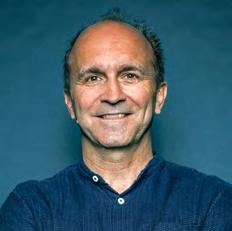
This year saw the return of festivals across Europe after the pandemic break. And it was a comeback full of excitement and joy – but also many challenges in what some are describing as the toughest year to date. Here we look back at some of the themes that dominated summer 2022.


When live concerts returned after the lockdowns, there were predictions of “the roaring twenties,” as music-starved fans flocked to see their favourite artists once more. But by the beginning of the festival season this year, that bullishness was being tempered by loud notes of caution.
At May’s ILMC in London, DF Concerts CEO Geoff Ellis, whose company runs Scotland’s TRNSMT festival, correctly predicted some of the themes that would come to dominate the summer: increasing costs, exacerbated by supply chain and staffing issues.
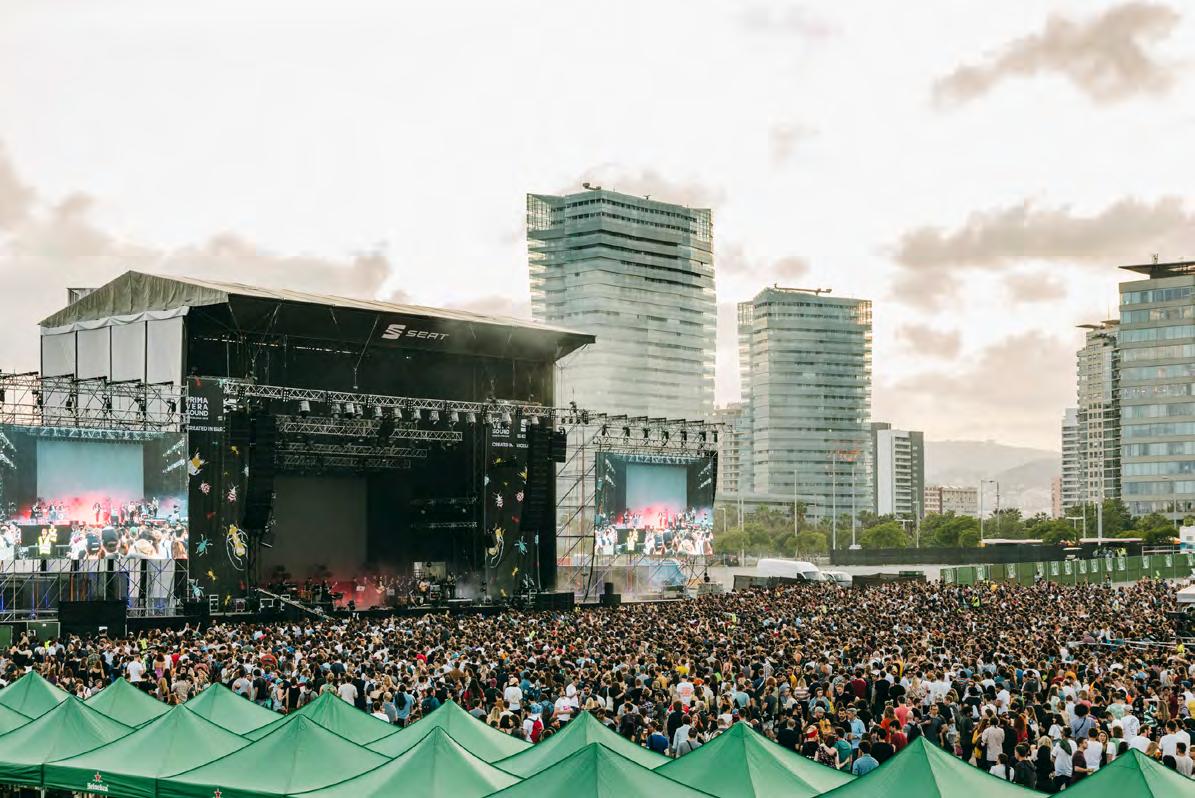
“In the UK, costs are going up at least 25% from 2019 prices, which is really difficult,” he said. “And it’s the scarcity of kit as well, so stages, barriers – we’re having to beg, borrow, and steal barriers from different arenas because there are so many shows on. There are shows that have moved from 2020 and didn’t happen in ’21, all happening, plus the festivals, plus the outdoor business that would have taken place in ’22.
“Also, staff – lots of stewards left the industry during the pandemic. Lots of sporting events are taking certainly the high-end toilets, maybe not the actual Portaloos but the flushable toilets and trailers, so that’s a real challenge.”
And he noted that simply putting up prices to cover these additional costs this year wasn’t an option, coming off the back of the loyalty of people who held their tickets for years and with a cost-ofliving crisis already biting.
So, here’s a round-up of how things worked out this year.
One of the most significant challenges of 2022 was the massive increase in costs for production. Issues associated with Covid and Brexit and longstanding problems of low pay and long hours, finally came home to roost. There just weren’t enough crew, security, drivers, trucks, staging, toilets, and everything else needed to fulfil all the concerts that were held over during the lockdowns as well as fulfil the festival season.
One of the earliest casualties was Belgium’s 25,000-capacity Rock Werchter Encore, which was called off just a month after being launched, due to “high production costs, staff shortages, and low consumer confidence.”
Typically, festival companies reacted with pragmatism. As an example, Mojo Concerts in the Netherlands launched a new website to advertise
the hundreds of festival jobs available, in a collaboration with partner companies operating within the sector. The platform included full-time, part-time, and flexible posts in roles such as security, medical services, production, office, hospitality, cleaning, and tech.
Many of the employers listed on the website worked with festivals including Lowlands, Pinkpop, NN North Sea Jazz, Down The Rabbit Hole, and WOO HAH! x Rolling Loud.
The severity of the crisis was seen across Europe, including at one French festival where it was reported that a headliner almost pulled out because the staging equipment was delivered so late that it almost wasn’t complete by the time the event was due to open.
As the season drew to a close, Detlef Kornett of Germany-based, Europe-wide promoter DEAG, reflected: “We’ve all been hit with price increases, with logistical problems, with lack of security, lack of stagehands, lack of riggers, lack of materials,” he told the International Festival Forum conference in September. “But I found this year particularly challenging, hearing and experiencing all the stories of our long-term suppliers being in the dark.
“For some of the festivals, the price increases could not be captured because we’d already sold the tickets [in 2020]. So, our results have not been as we wanted them to be, but generally, we felt lucky because we could stage our events. We were not hit by weather; we didn’t have to shut down because we couldn’t get security. Our long-term suppliers across the group worked with us. So, we somehow got there but how, at times, you can only talk about at night when nobody’s listening.”
The problems were Europe-wide, as Federico Rasetti from Italian live music industry association KeepOn Live explains: “As well as the staff shortages, we saw a significant growth in the number of festivals – there were a lot of independent festivals in Italy, some of them less than 50 kilometres away from each other, which increased competition for artists on line-ups.
“We saw a great return to live events as people wanted to go out again, but there were too many events.”
He adds that worries about inflation meant that spend at festivals was down this summer.

While 2022 was the first year back for most festivals, any notion of the world being “post-Covid” was quickly disavowed as many festivals saw artists being forced to pull out due to illness. Spain’s Primavera is one of the first major events of the season, and although it was a resounding success – seeing more than 400 artists perform across two weekends in June and attracting nearly half a million people – The Strokes, Bleachers, Bikini Kill, Clairo, Holly Humberstone, Pink Pantheress, and Massive Attack were among the acts forced to pull
out due to health issues. Covid also hit a significant number of the event’s hospitality team, leading to problems in the first weekend, including large queues for bars. However, as the company’s Marta Pallarès reflected afterwards: “I don’t think I’ve ever witnessed so much love from the artists – everyone was thrilled [to be back]. Everyone was saying this was the best show they’ve played.”
Issues caused by Covid continued to have an impact on many company finances. The UK’s largest independent festival, Boomtown (76,999-cap), sold a 45% stake to Live Nation, Gaiety, and SJM Concerts. “Like many other businesses in our industry, due to Covid our landscape has changed, and to stay ahead we have had to adapt and be agile. It’s been a very tough few years,” said the festival founders in a statement. “One of the decisions we came to in the last few months, as a direct result of the rising costs in staging such an epic and complex show, was to seek investment.”
There was also consolidation across Europe.
“Like many other businesses in our industry, due to Covid our landscape has changed, and to stay ahead we have had to adapt and be agile. It’s been a very tough few years”Boomtown festival founders Amyl and The Sniffers at Primavera © Christian Bertrand
Live Nation GSA acquired a majority stake in Berlin-headquartered festival, booking, and services agency Goodlive, which runs festivals including Melt!, Splash!, Full Force, Heroes, and Superbloom. Backed by venture capital money, live giant Superstruct Entertainment bought stakes in professional action sport and music festival Nass (30,000-cap), run by Vision Nine, and Blue Dot (25,000-cap), both in the UK. And Warner Music Poland bought a minority stake in Big Idea, one of Poland’s leading concert and festival promoters.
Event discovery and booking platform Festicket collapsed in September, owing more than £22.5m. Many festivals were among the creditors, some of whom were owed millions. While the assets were bought by ticket exchange Lyte, so the businesses continued, many events remain uncertain about the cash they’re owed.
UK-based music, travel, and experiences start-up Pollen also went into administration, citing “turbulent trading conditions of the company’s subsidiaries as a result of the Covid-19 pandemic.” It owed £75m to investors.
The European music industry stood in solidarity with the people of Ukraine when Putin’s Russia invaded in February 2022.
Among the support from festival organisers was Czech Republic’s Rock for People, which built a small village for refugees on its site, aided by donations. And the festival site where Dutch festivals Lowlands
and Defqon. 1 are held each year was turned into a shelter for more than 1,000 refugees.
Many other events helped by raising money for Music Saves UA, a fundraising initiative created by the Ukrainian Association of Music Events to provide humanitarian help in the country. The European Metal Festival Alliance, made up of 13 festivals from across the continent, created a “Metal United” charity shirt, with all proceeds bring donated to the non-profit organisation. Contributing events were Bloodstock (UK), Alcatraz (Belgium), Art Mania (Romania), Brutal Assault (Czech Republic), Dynamo (Netherlands), Into The Grave (Netherlands), Leyendas del Rock (Spain), Metal Days (Slovenia), Midgardsblot (Norway), Motocultor (France), Party.San (Germany), Resurrection (Spain), and Summer Breeze (Germany).
Barracuda Music, the organiser of Austrian festivals Frequency and Nova Rock, ran a 40,000-capacity charity concert in Vienna, raising €1m, which was matched by the Austrian government. The money was donated to charities Volkshilfe and Nachbar in Not.
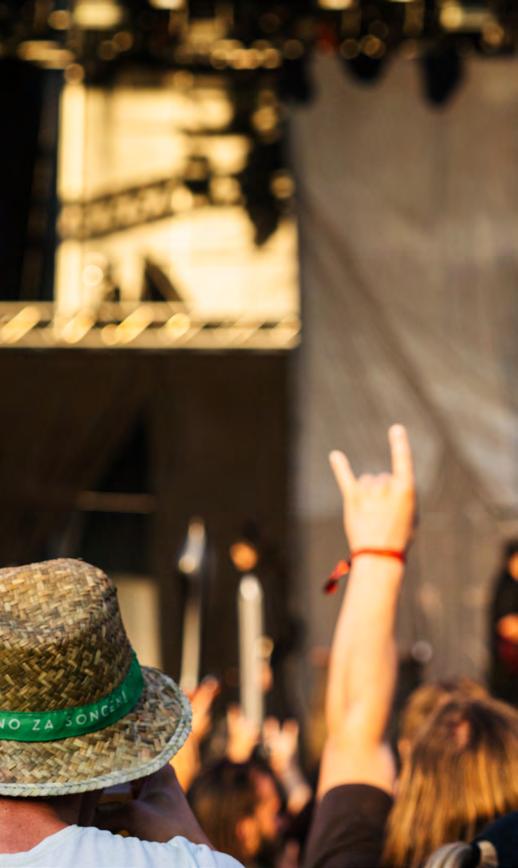
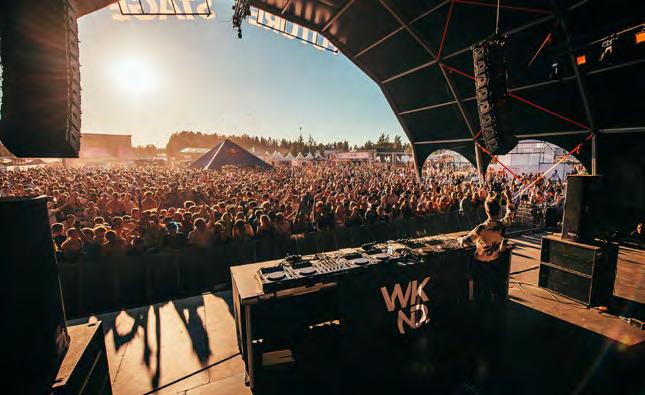
“We are so happy to be back doing what we love and seeing music fans experiencing these great shows”Jim
King, CEO, European festivals, AEGWKND festival © Niki Soukkio
Romanian festivals Electric Castle, Jazz in the Park, and Untold supported the humanitarian movement Un Singur Cluj to raise funds for Ukrainian refugees by selling solidarity tickets.
Having a border with Ukraine, Slovakian festival Pohoda organised a charity concert on Bratislava’s main square, which was streamed on YouTube, with recommendations for charities to support. Festival CEO Michal Kaščák also called for a Ukrainian music quota in Slovakia, to support musicians.
And YOUROPE members including Finland’s Ilosaarirock and Flow festivals, OpenAir St. Gallen (Switzerland), Off Festival (Poland) and Way Out West (Sweden) supported a variety of charities working in Ukraine by donating a share of their ticket sales.
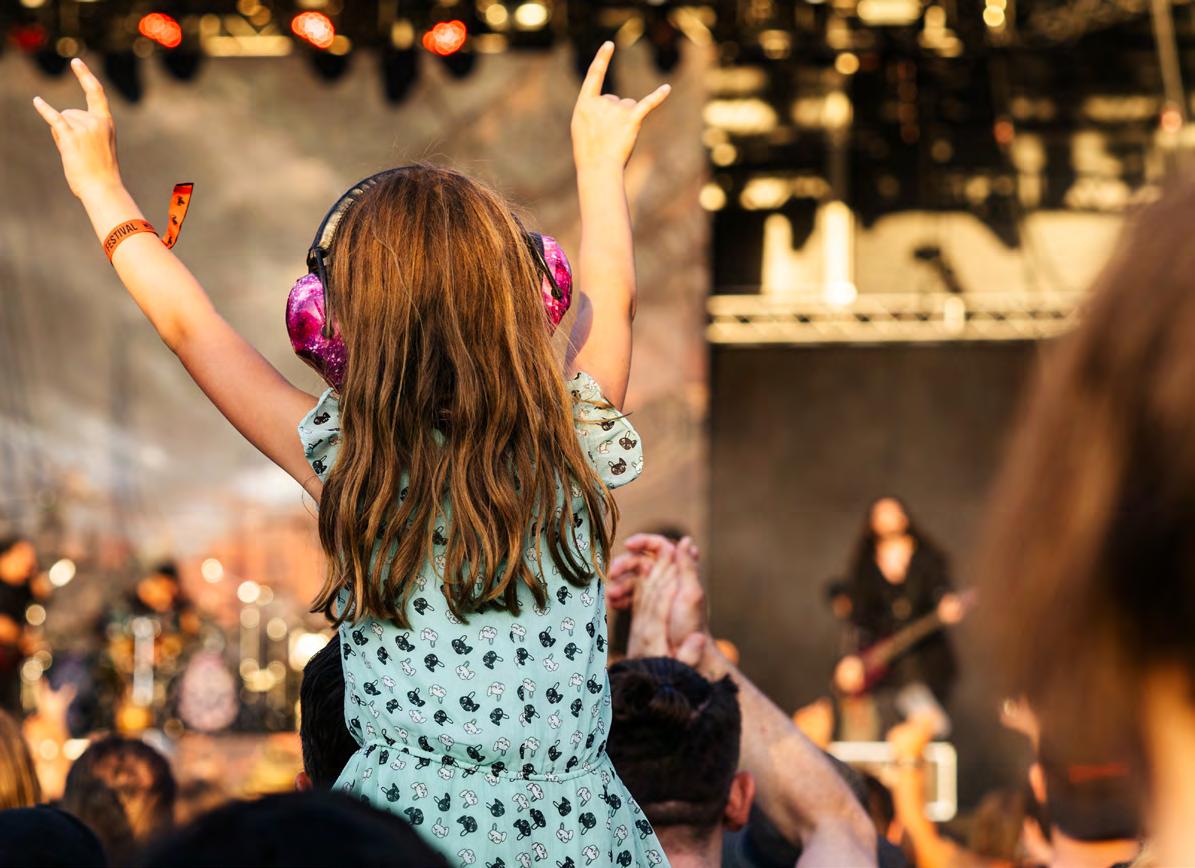
Taking place mainly outdoors, a key talking point is always the weather. As Europe saw record-breaking heatwaves and severe weather incidents, our events are among those at the sharp end of climate change.
In June, 40,000 people were evacuated from French festival We Love Green after violent storms forced
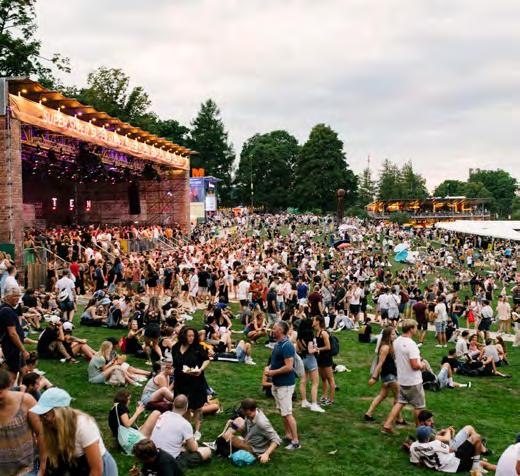
organisers to cancel its Saturday evening programme.
The same month, Eurockéennes de Belfort cancelled its Thursday and Friday evenings following a major storm, which saw seven people injured, according to French daily Le Figaro. The following two days went ahead as planned, with 60,000 people in total.
The heatwave across Europe led to local government officials in France banning outdoor events over one particularly hot weekend. Among those affected was the 10,000-capacity Freemusic Festival, which was forced to cancel at the last minute.
Despite the issues above, there was also much to smile about this summer. Anyone attending a festival this year couldn’t have failed to notice the sheer joy and exuberance of everyone involved. Performers enthused from stages across Europe at how happy they were to be back, and audiences roared their agreement. Plenty of festivals sold out, including BST Hyde Park in London, from where AEG European Festivals CEO Jim King said: “Like everyone in the festival business and across live music, we are so happy to be back doing what we love and seeing music fans experiencing these great shows. The calibre of artists we have had in Hyde Park was incredible, with so many outstanding performances. The demand for tickets was huge, and we are very proud to have sold out the series.”
And Live Nation Belgium CEO and Rock Werchter founder Herman Schueremans said this summer was
a “happy rebirth of festivals after two years of Covid,” describing this year as “even better than 2019,” with his flagship event selling all 66,000 combi-tickets and 80,000 one-day tickets by early February – months earlier than usual. Fellow festivals Werchter Boutique and TW Classic also sold out at 60,000-capacity each, and after increasing capacity by 2,000 to 52,000, Graspop Metal Meeting in Dessel also was fully booked.
Selling 20,000 tickets, Latvian festival Positivus saw its largest audience “in years,” after relocating from a small beach town to the capital Riga, said CEO Girts Majors.
And the positive experience this year has led to record-breaking sales for 2023 at events such as Wacken Open Air (Germany), Glastonbury (UK), and others.

Independent festivals also were delighted to be back. As Rasetti from KeepOn Live notes: “Independent festivals are a key part of the music landscape because they not only are an opportunity for the local area, as many people don’t travel far to see artists, but the economic sustainability of these kinds of events is really important because they bring culture and freedom of expression across Italy. It means they bring music to rural areas not just the big cities. They’re also key for artist development.”
New festivals launched, too – demonstrating a level of confidence in this dynamic sector. Among them was Superbloom in Munich (see interview with festival founder Fruzsina Szép on page 42), Tempelhof Sounds in Berlin (see page 23), and dance music brand
Ultra Worldwide, which opened an edition in Spain –Ultra Beach Costa del Sol. Tomorrowland and Rock Werchter partnered for Core – a two-day boutique event in Brussels, while House of Fun and Last Tour –the company behind events such as Bilbao BBK Live, Azkena Rock Festival, Cala Mijas, and BIME Live –launched MEO Kalorama (cap. 40,000) in Lisbon.

Just before headliner Pearl Jam took to the stage at Pinkpop – one of the longest-running festivals in the world – 60,000 fans witnessed a historic moment. Jan Smeets, godfather of the European festival scene and founder of Pinkpop in 1970, said goodbye – or, more accurately for this Dutch stalwart – tot ziens His team arranged a heart-warming farewell on the main stage of the festival, and the crowd waved “Mr Pinkpop” off into retirement with cheers after he’d spent more than five decades as head of the festival.
The work of the 77 year old is undisputedly trendsetting, has inspired countless festivals, and was celebrated with numerous awards, including the first Lifetime Achievement Award at the European Festival Awards 2009 and the Dutch Order of OrangeNassau. His legacy will undoubtedly remain in the future, while Smeets lives up to his long-time motto: “Keep on rocking in the free world.”
The enforced hiatus could have seen a slowdown in progress being made on diversifying line-ups. And it remains a mixed picture. While some festivals are achieving gender balance on their bills, the European Festival Survey (see pages 15-22) indicates that the average proportion of female artists performing at
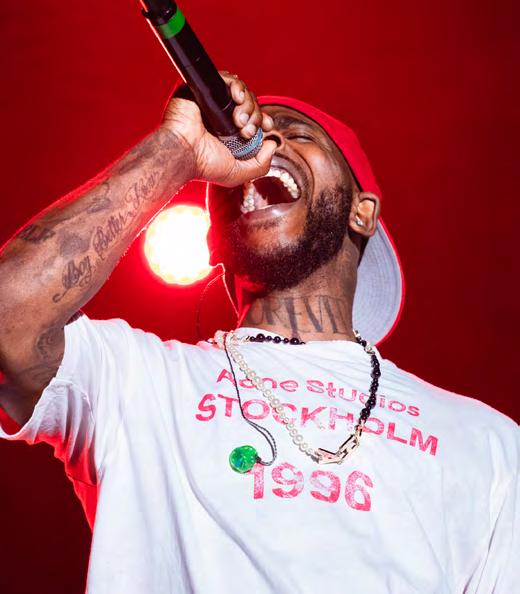
festivals this year was 32%. However, addressing this remains a high priority – coming in as the third most important pressing issue in our survey. As Primavera’s Marta Pallarès wrote in IQ last year: “Why shouldn’t we use this crisis as an opportunity to fix systemic issues – that are more deep-rooted and insidious than a virus – instead of as an excuse?”
In other good news, the challenges of 2022 didn’t dampen festivals’ resolve to become climate neutral. As we see from the European Festival Survey 2022, 86% of events who responded said they plan to reach this goal. Many have made significant reductions in their fuel usage, shifted to environmentally friendly power options, or are using energy-efficient technologies, plus there have been big changes to food and drink offers, leaning towards plant-based produce and locally sourced ingredients.
Take a detailed look at what’s been happening this year in the Sustainability section on pages 24-35.
The first ‘proper’ year back after Covid-19 was a story of stormy challenges and bright, shining joy. Many teams will be left feeling exhausted but delighted to be back doing what they love after the enforced break.
Many will share the sentiments of Martin Wacker, managing director of KME, which produces DAS FEST in Germany, who summed up the experience this year: “We are proud and grateful that we were able to break even despite the adverse circumstances. DAS FEST 2022 cost around €4m. That’s a good 30% more than before Corona. We could only break even with great efforts and savings from everyone. The great solidarity of the DAS FEST family and the good beverage sales also played a part in this. A big thank you also goes to our long-standing sponsors, service providers, and partners, who have supported beyond the usual and made some things possible at short notice.”
Melvin Benn is often regarded as one of the founding fathers of the UK festival industry. Now, as managing director of Live Nation-owned Festival Republic, he is responsible for festivals including Latitude, Wireless, Download, and Ireland’s Electric Picnic. During Covid, he was central to securing the return of live music, through a concerted campaign of lobbying and planning and by funding test events.
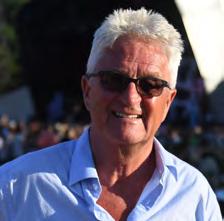
What did it take for you and the team to get through the pandemic?
In truth, Covid was one of the most stressful and traumatic periods of my life. Like many people, I had people close to me die because of the virus. What was particularly challenging for all of us is that the creative industries are made up of doers. We just want to create excitement for the public to enjoy. The frustration of not being able to do so was immense.
So, in June 2020, I came up with the Full Capacity Plan, based on people wearing masks and only allowing people to attend that had been tested and proven to be clear. With the industry behind me, I trotted off to every government department and made a lot of effort to try and get us back working. Eventually, they started listening.
Initially, though, they didn’t accept the music industry as being a test environment – they wanted to put us in the same environment as football fans in a stadium. I felt that left us vulnerable – I could imagine the government’s scientists saying, ‘This is great, we can open the football, but we should have done some research around music, but we didn’t, so it can’t open.’ So I spent an intense three weeks hammering on government to allow us to do that, which resulted in the Sefton Park trial in Liverpool and the Download trial – which I had to pay for through Live Nation and Festival Republic.
There were many people involved in many aspects of trying to get us back, such as the Live group, but I personally felt a great responsibility to help the industry.
So, what did it mean to you when your events came back properly for the first time?
It can’t be described as anything other than absolute joy. Everybody associated with getting gates open feels joy whenever we open a gate, the doors of Brixton Academy, or wherever – because we live to create. But the feeling when you realise that you could do it after the pandemic was immeasurable.
What trends are you seeing?
Audiences are interested in ever-improving standards. And that can only be good for our industry.
The public forums of TikTok, Twitter, Instagram, and other social media can be hard to deal with because it’s quite a challenge because everyone can see someone complaining about an overflowing bin, for example. But what it also does, is it helps inform my team about what festivalgoers are thinking. My social media teams start talking to the person who’s posted the picture of the bin, asking them where it is, and we can get it rectified in real time. The more that you interact with them, the more they’ll come back. They’ll say, ‘I saw a problem. I reported a problem. They fixed it.’
That level of interaction also informs issues such as sustainability and diversity, which is very important.
What’s the importance of festivals to cultural life?
Festivals have been around for hundreds of years. We’re bringing light and enjoyment to people’s lives. People are able to gather among like-minded people at festivals. And that’s a great feeling – it’s a cultural uplift.
If you think [about the fact] that in 1989 there were only two festivals in this country – Reading and Glastonbury –that festivals are so prevalent today is testament to how much they’ve changed people’s lives.
Read the full interview with Melvin at Iq-mag.net.
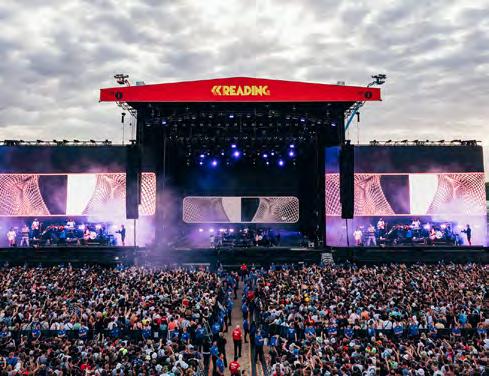
For most festivals in Europe, 2022 was the first year back after the pandemic. What did it take to survive the last few years, and what lies ahead?
Our survey of hundreds of festivals across the continent reveals some fascinating insights.
Festivals are a key part of cultural life across Europe – in some places for more than 50 years.
Opportunities to see multiple bands, hang out with friends, have new experiences, and see various types of art from around the world, they are often the highlight of people’s year.
Yet, the last few years have been extremely tough. Lockdowns across Europe and the ban on live events taking place saw the fields fall silent. Some festivals couldn’t cope, and businesses failed, leaving a hole in cultural life.
Most of those that survived saw their first return this year, although some lucky ones were able to take place in 2021. So, what has it taken for them to get through, what have they learned, and what are the lasting effects of Covid on an industry that provides hundreds of thousands of jobs and billions of euros in economic activity across the continent?
To find out, the European Festival Survey asked festivals across Europe to answer questions on topics from ticket pricing and length of festival to concerns in the industry, no–show rates, staffing issues, and the effects of Covid–19 on their businesses and the wider industry.
A total of 157 festivals from 29 countries across Europe responded, reflecting a broad variety of events from very small capacity to those attracting more than 50,000, those taking place in city centres to those on greenfield sites.
What we discovered highlights the enormous impact the pandemic had – not just on the festival businesses themselves but the associated suppliers working with such events, as well as audiences and artists. The survey results also show the effects of financial support from governments as well as the resilience and determination to succeed that is the hallmark of people working in this business.
Over the next pages, we’ll delve into the details of the survey results, painting a picture of European festivals’ return after Covid, and we’ll look ahead to some of the challenges and opportunities ahead.
A total of 94% of responding festivals were multi–day events. Most were three (33%) or four (27%) days long, with just 13% coming in at two days, 10% at five days. The average length of a festival was 3.9 days.
So where do these events take place? Some 46% described themselves as city–based festivals and 54% were on greenfield sites. 12% were multi–venue events, taking place across a variety of existing venues and infrastructure.
The average age of a festival that responded to the survey was 19.9 years – highlighting the length of time such events have been a key part of cultural life. However, perhaps it also indicates that being well–established – with long experience, a secure financial footing, and committed audience – was a key factor for surviving the pandemic. Only a handful of respondents were less than five years old.
Of the festivals that responded to the survey, 2% were very small (500–2,500 capacity), 11% were between 2,501–5,000 capacities, 17% could accommodate between 5,001 and 10,000, while the same percentage had 10,001–20,000 capacity. Reflecting a fairly even spread across capacities, a total of 16% of events were between 20,001–30,000–capacity, 15% were 30,001–50,000, and 22% were 50,000 and above.
There were multiple ways to buy tickets to these events, ranging from whole event passes to single day and others. On average, festivals offered 4.94 categories of tickets. Most festivals had both whole-event (79%) and single-day ticket options (78%), with just 7% offering people the opportunity to come to single shows.
In terms of costs, the price of an average day ticket in 2022 was €74.70, while average whole-event tickets were €176.85.
When it comes to getting tickets, there’s good news for younger people, who often make up large numbers of audiences – a large proportion (26%) of festivals offer discounts for this demographic and 20% make it cheaper for students to attend. Only 5% offer discounts for senior citizens, while just 6% offer cheaper tickets for people on lower incomes.
For those looking to save money, 66% of festivals incentivise people to buy early by offering early–bird discounts on tickets, and 29% say they just have one price no matter when you buy. 5% use dynamic ticket pricing.
If money is less of a concern and you’re looking for a premium experience, plenty of festivals have some sort of VIP offer – with 41% providing regular VIP passes and 22% having a premium VIP ticket. 22% have glamping, while 19% don’t provide any kind of VIP treatment.
Audience travel is a significant contributor to festival emissions, and some events aim to ameliorate this by offering transport solutions with their tickets. Of the people we asked, 15% offer festival shuttle buses, 10% have offers with local bus companies, and 6% have a general local transport offer. 7% give festival goers the option of including a regional train fare, and just 1% have national train fare ticket options. 66% of festivals do not provide transport and ticket bundles at all.
With so many festivals not happening in 2021, half of festivals say they had up to 25% of their tickets held from a previous year; 13% saw between a quarter and a half of their tickets held from an earlier year; while just 5% had almost all (91–99%) of their attendees coming on passes from another year.
Whether or not people kept tickets from another year, the level of ticket sales in 2022 was a mixed bag. Of the respondents, 11% said their sales were “much worse” than 2019 and 25% said they were a “little worse”; 20% said they had the same level of ticket sales as the last time their event took place, while 28% said they were somewhat better and 16% said they were much better than pre–pandemic.
Demonstrating how much people value festivals as social events (and probably the fact that people were spending on average €176.85 on a ticket), no–show rates were low – 70% of respondents said they had less than 5% no-shows. 20% saw between 6–10% of people not turn up and just 9% had 11–20% no-shows.
Festivals continue to attract people across national borders, with a fifth of festivals drawing between 11% and 20% of their audience from outside their own country. 59% draw less than 10% of their audience from abroad. Interestingly, 5% saw more than half their audience come from abroad.
Perhaps reflecting a pent–up demand for experiences after the lockdowns, 14% of festivals said they saw an increase in the proportion of people coming from another country, while 67% said their proportion of foreign visitors remained the same. 20% saw fewer people come from abroad.
Respondents were asked about the effects of Covid–19 on their business, and the responses make for depressing reading, with plenty of comments such as “a disaster” and “a catastrophe.” All describe huge financial impacts, some reflect on the decline in consumer confidence, and many talk about the resulting reduction in available workforce, as people left the industry for other – more secure – jobs. The period also had a major effect on people’s mental health, as noted by a significant number of festival organisers.
Other impacts included the effects of young people getting out of the habit of going to festivals or not having their first experiences – which could affect audience numbers in future.
Yet some festivals were able to put the enforced hiatus to good effect, including the opportunity to review and reframe initiatives and focus on new projects. Others found the pandemic forced them to be more creative whilst others carried out restructures to become more efficient. As one festival put it: “We learned to dance in the rain.” And another said: “Our industry took a huge hit. But we got through it.”
A fifth of festivals said they had to cut back or reduced their activities at this year’s festival as a result of the pandemic. Among the changes were things such as programming fewer artists, reduction in festival decoration, fewer ‘nice to have’ elements or other items that enhance the personality of a festival, or reducing the size of the festival site. Others were forced to cut back on sustainability measures because things such as reusable cups are more expensive than single-use. Some stopped offering free tickets for media.
But as one festival noted: “Fortunately, the cuts were hardly noticeable to the audience.”
What seems to have been key to the survival of these important cultural events was government support programmes. Some 80% of festivals say they
had some form of government help. Without it, there’s a strong argument that many of these events wouldn’t have survived. And for the 20% that did make it through without any assistance, it’s testament to their resilience.
Perhaps as a result, 42% say they feel “well prepared” for another pandemic wave (let’s hope not!) and 25% feel “a little prepared.” Just 11% feel “not really prepared” and 4% say they are “unprepared.” Showing just how unpredictable the pandemic situation has been, 19% say they just don’t know.
So, what measures did festivals take to survive the pandemic? 56% say they relied on ticket roll–over, while most had some sort of state support systems, even if they didn’t cover all the losses. 34% ran alternative events, 24% engaged in lobbying and campaigning, while 10% saw fans spend money on merchandise.
Half of festivals said they made “big” changes to their events in 2022, and 57% plan to next year –perhaps reflecting a more optimistic outlook for 2023.
Some of the changes festivals made in 2022 included marketing or programming initiatives to encourage younger festivalgoers to come back to events, while many said they improved their sustainability measures or introduced Covid–safe measures. Going cashless was a popular change. Some city–centre festivals said they changed some of their venues. In positive news, some festivals increased capacity and others added days to the event.
Among the changes festivals plan to make to their 2023 editions is an increased focus on gender equality on the bill – as referred to by a large number of those who made changes. There was also a strong focus on increasing diversity and on improvements to accessibility for disabled people. Others said they were aiming to be more sustainable, while some plan to increase the size of their festival site and add more stages or wider food and drinks choices or even increase capacity.
The well-documented problem of staff shortages across the live music business was felt at many events – 53% of respondents said they were short staffed. Of these, 69% were 1–25% down on staffing levels, while 25% said they faced shortages of 26–50%.
And this is continuing to be a worry for festival organisers looking to 2023. Almost half (46%) said they were worried about staffing next year.
We asked what other challenges were ahead, and rising production costs – with their potential to affect profits or force ticket prices to increase at a time of inflation – was the top concern, with 90% of festivals saying this was a major issue for them.
Of course, one major inflationary driver is rising energy bills for everyone, driven up in most places by Russia’s invasion of Ukraine. So, it’s not surprising that 35% of festivals feel that political outlook is likely to figure in the 2023 festival season.
Sticking with costs, artist fees were a worry for 63% of respondents, while 51% said they felt “selling tickets” would rank highly as a challenge.
Sustainability is a key issue for festivals. Attracting thousands of people; building production and staging; providing food and drink; and more requires significant energy–use, waste, travel emissions, and other effects on the planet.
European festivals are very conscious of the important role they can play in reducing their impact on the environment – a massive 86% plan to be a climate neutral event. Of these, 42% expect to be climate neutral within three to five years and 46% say they will be by 2030. Impressively, 4% of festivals say they already are and 8% expect to be within two years.
There are many initiatives aiming to help festivals and their audiences be more environmentally friendly. Discover the latest innovations and activity in our special section about this important issue on pages XX–XX.
Diversity of line–ups has been a focus of the industry for some time. A 2019 survey of UK festivalgoers showed that 29% of people felt there wasn’t enough diversity on line–ups, and 29% of people said a gender–balanced bill played a role in their festival selection. The good news was that 49% of people thought that line–up diversity had improved over the years.
While many festivals are taking their own measures to address this issue, there are a variety of formal initiatives aimed at creating gender–balanced line–ups at festivals. Among them are Keychange, a global network and movement that aims to reach full gender equality across the music business, and UK–based major company Festival Republic’s Rebalance, which supports female musicians.
Our survey shows that in 2022, the average proportion of female artists on bills was 32%. There’s still some way to go when it comes to achieving gender equality across line–ups, but as the results of cross–border talent programme ESNS Exchange shows, things are looking up. The top 11 acts that saw the most bookings through the scheme were majority female or female–fronted (see page 41).
In terms of the number of women working in the festival industry, the picture looks much better. Our survey shows that on average, 52% of staff were female.
As well as being major cultural events, festivals have notable impacts on local, national, and international economies.
Some events carry out economic impact surveys to measure how they contribute to the finances of areas. Here are some case studies, highlighting just how significant these events are.
Over the four festival days this year, this longstanding award-winning festival in Novi Sad saw more than 200,000 visitors from 100 countries pass through its gates.
The festival’s research shows that in 2022, it contributed €19.7m to the economy of Novi Sad and Serbia, bringing the event’s total economic contribution since it was founded in 2000 to €220m.
On average, tourists from Western Europe spent €821 each, while international travellers represented around 65.4% of visitors (the highest in the history of the festival).
The festival says that in July 2022, 91% of visitors to Novi Sad came because of EXIT, and 71.5% of this year’s audience paid for accommodation during the festival.
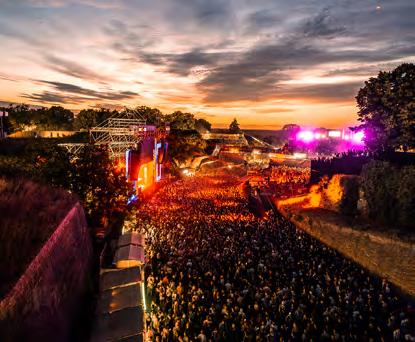

Taking place in Lancaster, northwest England, Highest Point’s economic impact on the Lancashire region is estimated to be £4.68m, according to research carried out by Red Research. It showed Highest Point to be a significant income generator for the region, with a return on investment of £4.26 for the local economy for every £1 invested in the event.
The event brings an influx of cash into the tourism industry in the city. While 6 in 10 people who attended were local, a fifth travelled from elsewhere in Lancashire and a further 21% from outside the county. On average, tourists stayed for more than one night, with most in hotels in the city, and the total additional trip-spend generated was estimated to be around £210,000.

Bilbao BBK, based in the north of Spain, attracted 115,000 people over three days, generating €25m for local companies, according to Bilbao City Council figures reported in El Correo. The council particularly praised the fact that the economic impact had a significant impact on sectors that were most affected by the pandemic, such as the hospitality industry, commerce, and accommodation. “The latter exceeded 95% occupancy during the three days of the festival,” the report says. In addition, BBK Live promoters employed 3,500 professionals from different local companies in logistics, supplies, services, lighting, sound, audio-visual, or catering, thanks to a “kilometre-zero” policy, which prioritised suppliers in Bilbao and Bizkaia, leading to 72% of employment going to people from Bizkaia and 50% of the supplier companies coming from the territory.

The Malaga festival, which saw its first edition in 2022, with headliners such as Nick Cave & the Bad Seeds, Chemical Brothers, Arctic Monkeys, and Bonobo, was estimated to have an economic impact of more than €20m in the town and region, according to the city council. The mayor of Mijas, Josele González, told Europa Press: “We exceeded the initial forecasts reaching 107,000 attendees […] and attracted visitors from more than 50 countries to our city, with 27% of the total foreign public attendees who have arrived mainly from the United Kingdom, Germany, and Italy.”

The three-day, city-centre festival saw visitors spend on average €130.42 each at the event, and €43 outside the festival but in the local area. This means VESTROCK visitors spent a total of about €2.4m this year. Adding to this is the organisation’s spend in the direct area of approximately €2.8m.
The pandemic was challenging for all of us, although I think it ultimately strengthened our team spirit. Experiencing something this drastic brought us closer together, but for that to happen, open and frequent communication was key. We also offered anonymous professional mental health counselling for employees through an external institution. Additionally, we made it clear from the start that all jobs would be safe. As a result of these measures, we had a strong team to get a head start for the very busy period that followed.
Financially, of course, the pandemic was a disaster. However, we’re fortunate to have had some very successful years before 2020, which enabled us to fall back on funds to keep everything together. All the more, I’m very grateful that we succeeded in bringing back our festival brands like Hurricane, Southside, Highfield and M’era Luna in a way that didn’t feel downscaled – quite the opposite, in fact. All were sold out and were intense reunions for artists and fans, resulting in 2023 seeing the best presale onset ever.
We’re very fortunate and extremely proud of this strong comeback and our incredible team, without whom this wouldn’t have been possible.
After many delays, you finally managed to bring Tempelhof Sounds to life. It felt like a progressive event with a core philosophy of diversity, inclusion, sustainability, gender balance, and so on. Can you talk us through your thinking behind taking that approach?
From the get-go, we wanted to create a festival revolving around diversity and social, economic, and cultural sustainability. I think it’s clear why these things matter, especially nowadays. As a team, we created a company charter detailing our business ethics – these matters are integral for the people working for us and hence for the company. In truth, all our festivals have detailed sustainability measures in place, and Tempelhof Sounds offered the chance to build on them.
As for the diversity of our line-up, we’re very happy that it worked out the way it did and that we were the first major festival in Germany with a gender-balanced line-up. We aspire to more diversity at all our festivals, although this is an ongoing process.
What trends do you think we will see play out in the next few years at festivals?
I’m not comfortable with calling it a mere ‘trend,’ but I’d say that social and ecological awareness will continue to play an integral role in the future, not because it’s beneficial to claim those words for your events but because it’s a necessity. We’re working hard on backing those claims with meaningful measures while being open regarding the things we’d still like to change.
What challenges does the festival industry face? And how are you aiming to address them?

We’re still facing challenging times. The last crisis wasn’t really over when the next one started. While (with some exceptions) demand for culture is still somewhat dampened after the pandemic, Russia’s horrible war in Ukraine has profoundly changed our society and economy. We’re seeing rising production costs of about 30% across the event industry, and there remains a shortage of qualified personnel because people left the business during the pandemic in order to make a living.
That being said, we’re very confident that we’ll overcome yet another challenge because we’ll have some very strong acts on our stages.
What role do festivals play in the cultural landscape?
Festivals are extremely important for large parts of our society. This is true for all kinds of live entertainment, but festivals offer a safe space for creativity, freedom, and congregation over several days. Given the many challenges we’re facing globally right now, the escape from everyday life that a well-made festival offers is an important and much-needed factor for recovery and mental well-being for a lot of people.
And although our festivals tend to be international events, they wouldn’t be possible without the support of local communities. For example, it’s great to see how proud inhabitants of Scheeßel are about Hurricane and how much they contribute to making the festival distinct and successful. These events fulfil a very important role in society and ultimately bring people closer together.
How did you and the FKP Scorpio team manage during the pandemic?
can play a key role in improving not only their own sustainability but in encouraging social change among their audiences, too. YOUROPE’s Katharina Weber and Holger Jan Schmidt review some of the latest initiatives.

How can festivals be more sustainable? That’s the question at the heart of a new initiative funded by the EU’s Erasmus+ programme that offers a suite of resources with the aim of helping people create more environmentally friendly festivals.


Future Festival Tools (FFT) is made up of a self-assessment programme that reveals where a festival stands in terms of sustainable practices, a guide with inspirational stories of festivals with great environmental projects, a certified e-learning course, and a trainers’ handbook for event businesses.
Put together by a team of event sustainability experts and professionals in international cooperation and learning, the goal is to create a future-proof European festival and events industry: resilient, competent, and embracing pioneering green practices.
Each tool in the FFT is structured around six key themes: energy; materials and waste; food and drink; water; and travel and transport were chosen because they represent the areas of production most likely to cause environmental impacts, whilst the sixth category focuses on creating long-lasting, comprehensive sustainability strategies.
The self-assessment tool is aimed at organisers of festivals or events or those responsible for an event’s production, operations, and/or implementing green initiatives. It can serve as a starting point for festivals who want to improve their sustainability and helps identify further training, resources, and

Above: The water cycle at Meadows in the Mountains
Right: An aerial view of Lowland’s 35-hectare solar carport
actions. Providing an overview of different levels of environmental practice at outdoor events across the six key themes, the tool enables festivals to see where their event is on its sustainability journey.

After completing the assessment, participants get not just an overall score but scores for each category and recommendations for next steps. There’s also a personalised report, training recommendations, and links to further resources and case studies.
The e-learning course is for anyone who works in live events or in education and training for event roles. Designed as a series of bite-sized modules, it also offers opportunities for diving deeper into the topic every step of the way. At the end of each module, there is an option to complete a short test and gain a certificate. The content and learning goals of each module can be seen before starting the course.
The guide, Green Festival Stories – A Collection Of Inspiring Examples From Across Europe, showcases 21 projects at festivals of all sizes by a mix of independent events and multinational companies, with genres ranging from pop to electro and metal. The stories focus on different key areas, but they all aim to show how they sought to reduce their environmental impacts and create a more sustainable business model. Featuring specific challenges and solutions, they’re presented in an entertaining and accessible way.
One of the case studies featured is the Lowlands Festival in the Netherlands. It was only this year that it finally managed to change from diesel generators to
renewable energy as a power source. Festival director Eric van Eerdenburg, says it took the festival 16 years to make the transition. “We’ve been investigating how to improve our electrical power situation since 2007,” he said. Lowlands previously relied on 103 power generators, which required 180,000 litres of diesel each time the festival took place. However, connecting to the national grid had long been impossible, he said, because of a lack of infrastructure, a lack of partners, and an adverse legal framework.
In 2015, the festival was approached by a development firm, which eventually built a solar park on Lowland’s 35-hectare carpark. To keep the parking spaces, all 90,000 solar panels were erected as carports. The solar park was first used in 2022 and can produce 35 million kilowatt-hours per year, equivalent to 100 festival weekends or about 10,000 households. “It’s the largest solar carport in the world,” according to Van Eerdenburg.

Another step towards sustainability was taken this year by Denmark’s NorthSide Festival, which also appears in the guide. The festival announced that its food offering would be mostly plant-based after finding out that meat was responsible for about 60% of the festival’s food carbon emissions. Since 2017, food and drinks on offer were almost entirely organic. The festival defines “plant-based meals” as largely consisting of plants, although they can be supplemented with a small amount of animal products. For NorthSide this means: no meat, no fish, and small amounts of cheese, egg and mayonnaise per portion (a maximum of 15% per meal).
“Food is something that all our guests are in contact with several times a day,” explained Martin Thim, partner and sustainability manager at DTD Group, who is responsible for NorthSide. “It’s a really nice way of communicating an idea to people without directly communicating. It’s also something we can directly influence, by setting demands for restaurants and kitchens.” For its first plant-based
The self-assessment tool is aimed at organisers of festivals or events or those responsible for an event’s production, operations, and/or implementing green initiatives
edition this year, the festival attracted many well-known restaurant chains and smaller, local restaurants that together offered a menu ranging from vegan burgers, sausages, sushi, and “fish” sticks to pizza, African and Indian food, as well as waffles and other sweets.
Future Festival Tools is organised by sustainability experts including Green Operations (GO) Group, Julie’s Bicycle (UK) and Green Events (NL); and international cooperation and learning
professionals including Momentum Consulting (IE), Le Laba (FR), The Nationwide Caterers Association, NCASS (UK), and the European E-Learning Institute (IE). The project is supported by YOUROPE, Green Music Initiative, Vision2025, Native Events, and Chris Johnson Consulting. All tools are available online. A publicly accessible test phase is running during 2022, with the final versions due for release in early 2023. www.futurefestivaltools.eu
Since it launched in 1993, Hungary’s Sziget has evolved into one of Europe’s largest festivals, featuring more than 1,000 shows on six stages over six days. With a strong focus on diversity, it attracts people from more than 100 countries and includes a broad range of entertainment including circus, theatre, a museum quarter, and much more. CEO Tamás Kádár looks back at the festival’s return since the pandemic.
What was it like for you and the Sziget team during the pandemic?
First of all, it was a great pleasure to see so many happy faces again on Sziget, the Island of Freedom, in August this year. To be together again and to enjoy music and freedom is always the highlight of my year, but this edition was even more emotional for our entire team after almost three years of pause and waiting.
Financially, it was a very tough ride for our company because the Hungarian government wasn’t willing to provide sufficient support for the culture and live sector during the pandemic, so we had to rely on ourselves. We managed to keep the core team onboard and to somehow keep our heads above water, despite these huge financial and emotional challenges.
Sziget is renowned for its broad international audience – what do you think is the cultural value of attracting people from so many countries to the festival?
I think Sziget is really a Pan-European get-together where young people from all over the world become ‘Szitizens’ of the Island of Freedom. We welcomed fans from over 100 countries in 2022. The festival’s programming is a broad church, from the
weirdest of the weird to the most mainstream acts on Earth. We welcome them all. We believe in embracing diversity, respecting human dignity, and looking out for each other.
What trends do you think we will see play out in the next few years at festivals?
I don’t consider this season to be the first edition after Covid-19 but the last during the pandemic. The real comeback for festivals will happen next year, and I think that major festivals will become increasingly successful. I’m conscious of the humanitarian and economic impacts of the Russian aggression in Ukraine, but I strongly believe that festivals can provide a safe haven for our souls where we can enjoy life and hopefully celebrate peace very soon.
What challenges does the festival industry face? And how are you aiming to approach them?
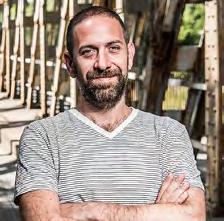
Most of the challenges are things such as inflation, staff shortages, and increasing energy prices, but I think Sziget has learned to manage these things over the past 30 years.
What do you think is the importance of festivals to the cultural landscape?
I think festivals have proven not only to have a strong positive economic impact on local and national level, but they also add a lot [of colour] to the cultural landscape of a society. Sziget is not only a music festival with a very strong international line-up but also a place for local acts and world-class performances from all kinds of genres and artforms. So, it is really a 360-degree performing arts festival, way beyond music.
Top: Green Deal Circular Festivals
© Kim Balster
Bottom: GEX We Love Food workshop
Industry pioneer A Greener Festival (AGF) has been helping festivals, events, and venues to become more sustainable since 2006. This year, the not-forprofit company provided sustainability certification assessments for 50 festivals across 16 countries and delivered detailed carbon analysis and strategy for over 25 different events, arenas, and stadiums. For AGF co-founder Claire O’Neill, this indicates a growing demand for more sustainability: “This year, despite the resourcing issues and other challenges faced by events, we had more applications for AGF certification than ever. This is a great sign that sustainability is high on the agenda for festivals. The increasing cost of energy and fuel is also helping to spur action on energy independence through renewables and efficiencies in power consumption and logistics. There’s a growing appetite for change in an increasingly uncomfortable status quo.”
This year, AGF delivered a brand-new A Greener Supplier certification and A Greener Arena certification framework. The organisation has also been working with the touring industry through its A Greener Tour consultancy. Besides hosting the Green Events & Innovations Conference, they have also provided consultancy and sustainability leadership on large-scale events such as the Queen’s Platinum Jubilee Pageant in the UK. AGF also
expanded both its environmental assessor community and its international training programme. www.agreenerfestival.com
Green Deal Circular Festivals (GDCF) is a European partnership of event organisers who want to see a sustainable festival sector. The Green Deal seeks to stimulate sustainable innovation and collaboration across the continent. The participating organisations are working together to develop circular economies, where nothing is wasted, and be climate neutral by 2025, by focussing on five key topics: energy; food and drinks; travel and transportation; resource efficiency; and water. Supported by the Dutch Ministry of Infrastructure and Water Management, the project was initiated in 2019.
At October’s ADE Green conference in Amsterdam, an additional 23 European festivals joined, doubling the number of events to 43, representing 14 countries, including sustainability champions such as Boom Festival (PT), NorthSide (DK), Øyafestivalen (NO), Paradise City Festival (BE), DGTL Amsterdam (NL), Shambala (UK), and We Love Green (FR). www.circularfestivals.nl
Pioneering French festival We Love Green launched this three-year living lab project in 2019. Co-funded by Creative Europe, it brings together six European


With sustainability a key topic for festival organisers across Europe, there are a number of organisations that aim to help. Here’s a selection of some of them along with their latest achievements.
partner organisations – four festivals and two NGOs – to develop, test, and review a sustainable production model for music and arts festivals.

Because the project is dependent on workshops and festivals taking place, it was severely disrupted by the pandemic. It took until 2022 for We Love Green together with Boom Festival (PT), Dour Festival (BE), and Pohoda Festival (SK) to take action with regard to GEX’s two main topics: scene design and food.
Scene design was chosen because it represents the festival’s image and includes things such as decoration, art, installations, and signage. It is the most visible way of raising curiosity and awareness about environmental issues among festivalgoers. Food is another high-impact area that engages many senses, and the food court is the place where festivalgoers can begin making a difference.
Across both of these areas, a new circular economy approach based on the 7R model was implemented, with support from A Greener Festival and GO Group. In summer 2022, seven workshops took place following festival-led public calls to artists, suppliers, and chefs. They included events on the sustainable design of art installations at the festivals as well as knowledge sharing and training on a circular approach to catering. The results are currently being evaluated, but they will be the basis
for the manual that is due for release in 2023, along with two charters. www.greeneuropeexperience.eu
The new sustainability programme from Gadget Entertainment Group launched in July 2022. As one of the leading companies in the Swiss entertainment market, Gadget is involved with all parts of the music industry from touring, festivals, and artist management to hospitality and brand partnerships. Among its events are OpenAir St. Gallen, SummerDays Festival, Seaside Festival, Radar Festival, Spex Festival, and Unique Moments.
The group’s efforts to become more sustainable and reduce its ecological footprint are summarised in Green Gadget. Gadget are working with two partners, SENN and myclimate, to create a comprehensive CO2 analysis of all of the group’s departments, which will allow them to create a multi-year sustainability strategy. The ultimate goal is to reach net-zero emissions. Annual public reports will verify whether the group has reached its intermediate goals in reducing emissions.
“We aspire to be a first mover – with a longterm plan for our employees, partners, and artists, because we are convinced that this can only be achieved together,” says Christof Huber, member
of
www.gadget.ch/green-gadget
The UK/US-based environmental charity co-founded by Brian Eno enables those in the music industry to pledge a small percentage of their income to EarthPercent, who then directs those funds to organisations dealing with climate change.

“While we’re still in the early stages, there have been some hugely positive steps taken this year,” says Becky Young, operations and communications manager at EarthPercent. “We’ve raised money through various pilot activities, including signing up new artists and festivals to a percent-based revenue pledge, an Earth Day Bandcamp release featuring 123 artists donating previously unreleased tracks, and collaborating with Evolution Music to launch the first commercially available bioplastic vinyl record (with Michael Stipe and Beatie Wolfe).” EarthPercent made its first round of grants this summer: approximately $148,000 went to 13 organisations. The goal is to double donations every six months, which would allow the charity to reach its goal of $100m a year by 2030.
EarthPercent x Festivals is one of many new campaigns planned for 2023. Because the pandemic means tours can still be tricky to get on the road, festivals are seen as a lower-risk income source for artists and therefore would still enable them to donate. “We’re discussing with artists, agents, and festival organisers how to build an alliance for the
2023 festivals season that sees all parties
collaborating to invest in the planet’s future through a pledge of 1% of festival fees to climate causes,” says Young. “We are also very willing to support festivals with content and programming on climate action and solutions, to help ensure consistent messaging and resonance across attendees, artists, and the industry.” Two festivals – Love International (HR) and Wide Awake (UK) – are already working with EarthPercent; more are due to be announced in 2023. www.earthpercent.org
The activist movement unites thousands of artists, music industry professionals, and organisations in a plea for climate justice. The group has declared a climate and ecological emergency and calls for an immediate governmental response to protect all life on Earth. Music Declares Emergency (MDE) believes in the power of music to promote the cultural change needed to create a better future. In 2022, it launched its “No Music On A Dead Planet” campaign, seeking to use the influence and reach of artists and fans to bring the conversation about the climate emergency into the mainstream.
To take a public stand, artists, organisations, and individuals can sign MDE’s declaration and join in the call for action. Signatories include artists and bands such as Arcade Fire, Aurora, Billie Eilish, Bon Iver, and Massive Attack as well as festivals including Shambala, MetalDays, Boomtown Fair, Paléo Festival Nyon, and The Great Escape. www.musicdeclares.net
Green Nation is Live Nation’s sustainability initiative setting out environmental goals for the global promoter.
This year, all Festival Republic festivals, alongside Creamfields, both Camp Bestivals, Cuffe & Taylor‘s Lytham Festival, Parklife, and DF Concerts used 100% hydrotreated vegetable oil (HVO) green diesel, produced from used cooking oil. The contracts ensured no palm-based vegetable oils were used.
“We see the use of HVO fuel as a transition, our longer-term strategy is to use mains power from renewable sources,” says Vikki Chapman, head of sustainability for Live Nation UK and Ireland, who works with Festival Republic on implementing the Green Nation Charter at all its festivals, including Download, Latitude, Wireless, Wilderness, Reading, Leeds, and Electric Picnic. In addition, she works with Isle of Wight Festival and Camp Bestival.
The company also worked with the London School of Economics to measure and display the carbon footprint of meals that were sold at ten festivals. Giving consumers information about the carbon footprint of the meals enabled them to make their own choices.
It undertook a waste reduction and engagement initiative at Reading and Leeds, which offered like-minded people who wanted to make a difference, a place to camp with others who live life with the planet in mind. Campers signed up to a three-point ethos: respect your fellow campers, respect the environment, and leave the campsite exactly as you found it. The initiatives resulted in zero tents left behind in all the Eco Campsites, and campers commented positively on the community feel. Engagement is a key part of the Green Nation Charter, using music as a platform to engage with audiences and raise awareness of environmental issues. Among the initiatives were all festivals publishing charters that set out how they are working towards the Green Nation goals, as well as equality and inclusion. In addition, the company supported eco campaigns at all festivals by providing a space for them to tell festivalgoers about current campaigns and how they can get involved beyond the festival. This included a headline collaboration with environmental campaign group Music Declares Emergency at Reading and Leeds, which saw its ‘No Music On A Dead Planet’ campaign given the same visibility as a major festival headline sponsor for free.


Meadows in the Mountains’ Kapfhammer Meadow
Many challenges face festival organisers hoping to make their events more sustainable. One of the key issues is finding suppliers that offer green solutions such as reusable cups; compost toilets or waste separation; and clean energy solutions. Bulgaria’s Meadows in the Mountains (MITM) and Ireland’s Body & Soul (B&S) have been finding innovative ways to tackle these matters. MITM’s Benjamin Sasse and B&S’s Megan Best tell us how they created sustainability in countries that lack a network of suitable suppliers.
Meadows in the Mountains takes place in the middle of nowhere in rural Bulgaria. How did you end up organising a festival there?
Benjamin Sasse: It was one of those beautiful, completely spontaneous things. My mum decided to retire to Bulgaria from the UK, so she brought along
my brother and me, the co-founders of the festival. We fell in love with the land and were heading to a lot of festivals at the time. Even in 2011, we felt that the market was very saturated with commercial festivals that lacked a message, a soul. We wanted to create something that had more meaning, but none of us had any experience in events. I’m a civil engineer by trade; my brother was doing set design on theatre productions. But we did have a great network of DJs, emerging artists, and live musicians that were our friends, so that became our nucleus of performers. The beautiful, special sunrise you can see from the mountain is something magical that we needed to share with the world. The first year was only 20 people with a little petrol generator, basic DJ set-up, and acoustic. From there, we grew it organically, purely through word of mouth.
How did the festival impact the tiny village in which it
BS: The festival has transformed the village. It’s important to us to integrate with the locals, so we work with them quite closely. I would say the average age of the villagers is about 90. Before we arrived, the village was falling apart, there was very little income for the locals. Houses were going for €5,000 ten years ago, now they are for sale for €70,000. I think the locals, especially the pensioners, make more from the festival than they get in their whole state pension year-round.
Does having a location that is so far away from everything make organising a festival more difficult?
BS: 100%. It’s a logistical nightmare. The language barrier is difficult, as is the distance from the airport and the location of the site. The closest motorway is two hours away, so it’s all just mountain roads. The only way anyone can access the festival site is through a narrow dirt road with 4x4 vehicles. The

professional festival organisers we meet all say, “Wow, 90% of other festival organisers wouldn’t even attempt it.”
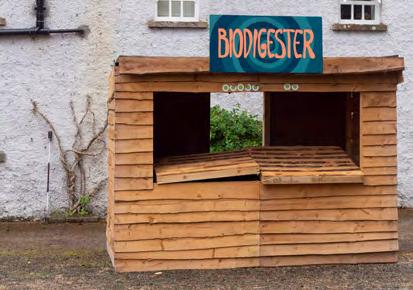
Doesn’t that make being sustainable more difficult, too?
BS: It makes it more difficult, but it’s also part of the need. We don’t have mains power or water; we have to supply our own infrastructure because we have no other choice. For a very small, independent, grassroots festival that has no sponsors and very little help from the local government, it’s very hard, and we’re doing more than our best to implement new initiatives, make an example, and educate.
You’re trying to implement a concept called “permaculture.” What’s that about?
BS: “Permanent culture” is not just based around farming but many principles. The three core ethics are: people care, Earth care, and fair share – looking after the planet, looking after each other, and then creating an abundance of a yield, whether that be farmed products or power. It’s about using everything, creating zero waste.

BS: Implementing renewable technologies, using the sun, wind, and water. For example, we collect the rainwater off our roofs, we treat our grey water onsite with a three-part system made out of gravel, sand, and biochar. The treated water goes into food forests we planted. We have composting toilets and use the compost for manure. We have compostpowered showers and solar coils on our showers. Permaculture teaches you that you can deal with all of your problems and all of your waste, you don’t need to use the municipality systems. But the only way it really works is if you own the land.
BS: We do. It was never part of the plan, but at some point the villagers didn’t want to rent it out any more, so we had to buy most of the mountain. That’s part of the reason why we have yet to get our finance sheet balanced. But, for me, this is the future of festivals. It’s very hard to develop infrastructure when you’re on land that you’re renting temporarily.
BS: It’s a reactor that has a water pipe coiled in a circular design. You build a lasagna-effect of compost and carbon. We use cow manure and straw and make sure it’s well-hydrated. Urine can serve as a catalyst. This reactor can heat up water to 100 degrees, and it lasts three months. If you use wood chips instead of straw, it can last for 12 months.
and organisations. They exist outside of Bulgaria, and they’re starting to emerge inside Bulgaria. We hope that we can acquire some funding or partner with positive change companies, whether it be a solar, hydropower, or natural cosmetics company.
Megan, you have faced the same problem at Body & Soul. How did you first react to the lack of suppliers in Ireland?
Megan Best: For years, we were doing everything ourselves through trial-and-error. We were building our own compost loos from bits of timber, but they were quite shoddy and not really feasible at scale. The same goes for renewable energy solutions. In about 2015-2016, we shipped over a load of solar
Benjamin Sasse is one of the co-founders of Meadows in the Mountains (MITM) and an integral part of the production team. The event, founded in 2011, takes place at the beginning of June. MITM is a four-day, 3,000-capacity music festival in southern rural Bulgaria, about four hours outside the capital Sofia. The festival site close to Polkovnik Serafimovo village in the Rhodope Mountains is one of the world’s most logistically challenging sites. Visitors can camp or rent a house in the village. The audience overwhelmingly come from outside Bulgaria. The festival pride themselves in providing a platform for emerging musical acts and inspirational speakers.
MITM’s sustainable initiatives include: using biofuel generators; the “train, not plane” initiative, offering free tickets to 20 visitors who come by train; offsetting their carbon footprint by partnering with reforestation projects in Bulgaria; banning single-use plastics and using enamel cups and insulated flasks in all bars; and collecting and separating all their waste without outside help and transporting it to a private waste company. By cooperating with a highly specialised Bulgarian company, they were able to recycle 95% of their waste last year; only 5% went to landfill. Furthermore, they are working on a collaboration with the local power company to install an on-site solar farm and to connect to the grid.
BS: Yes. But there’s a limit to how much we can do. We still want to connect with sustainable companies
So, to sum it up, your answer to the lack of sustainable suppliers in your country is doing everything yourself?Biodigester at Body & Soul © Scott Dagg

Megan Best is the operations manager for Body & Soul Festival. Additionally, she co-founded Native Events, which is a sustainable events solution company based in Ireland. They help other events with strategy creation and consultation, event production, and offer eco-friendly equipment for hire.
Body & Soul Festival takes place in June on a country estate called Ballinlough Castle in the Midlands in Ireland. After the festival had grown from 1,500 guests in 2010 to 15,000 in 2017, the team decided to downsize during the pandemic. To make the event more intimate again, only 5,500 tickets were sold this year. The three-day camping festival stands out because of its art and aesthetic. They have developed a five-year plan with Green Deal Circular Festivals. Their green initiatives include reusable cups; site-wide compost loos; a circular food court including reusable serveware and an anaerobic digester to compost food scraps; solar power to supply the box office; HVO-fueled generators; and waste separation, probably making it Ireland’s most sustainable music and arts festival.
panels and solar-powered tower lights. It was really frustrating because there’s very little point in doing that in terms of saving carbon emissions. The only thing you’re doing is showcasing that sustainable solutions exist and trying to inspire the audience in that sustainability message – which has actually worked. The audience is very on-board with the initiatives we do.
Eventually, you were so frustrated with the lack of suppliers that you co-founded your own company for sustainable event solutions in 2017, Native Events. What’s happened since then?
MB: We first invested in solar equipment, with batteries and solar arrays for temporary installations like a stage or a market. We did a lot of work developing strategies for waste reduction in the first couple of years. In early 2020, we had some really big contracts in place, not only with other events, but also with the suppliers in the events industry. Some big events had asked their suppliers for an environmental policy, but they didn’t know how to write them, so they came to us. Because our team has the knowledge of running events, we were able to put our heads both into the mind of the event organiser and the supplier and make sustainability strategies that were relevant to both.
How has the industry in Ireland changed since you started Native Events?
MB: Ireland faces the challenge that the market isn’t driving change at a larger scale yet, and costs are higher because of shipping. Unfortunately, Brexit has made everything even more expensive and brought in extra delays on shipments. But the industry is starting to wake up to the challenge. We’ve been developing
the social capital around it and getting better at communicating. And as more of the creative industries and festivals are getting interested, there’s been more of a collaborative effort to bring these solutions into this country. There’s more confidence in the markets for start-ups to get into this space, for people to really start to engage with it. We finally have a supplier of reusable cups on this island. One of the events industry’s key energy suppliers has recently invested quite heavily in a new fleet and is now using HVOs [hydrogenated vegetable oils] pretty much across its events portfolio. That’s a fantastic leap forward.

MB: No, quite the opposite. I think the pandemic has given people a new sense of awareness of their immediate environment and the fragility of it. Demand for Native Events’ services, in terms of climate action plans, environmental messaging, and monitoring, has gone up. On every level, from department through to state bodies, arts organisations, and events, people are looking to tidy up their act. In fact, there’s a lot of frustration in the industry here at the lack of suppliers and the availability of alternative suppliers.
What advice can you give festivals that want to become more sustainable but face the same challenges as you?
MB: A lot of the work that festivals can do to become more sustainable starts on the inside: internal communication, the buy-in, the education. It’s really about getting the team on board, everybody from the director right through to the volunteers. The more everybody is engaged in what needs to be done and making efforts towards it, the more sustainable the festival will be. Sustainability needs to incorporate social sustainability as well, the well-being of the crew. Get that right first and work outwards from there.
BS: I would agree, that mission has to come from within. Also, sign up to the Green Deal, find your community, surround yourselves with other festivals that are working in the same direction. We can all help each other. Sign up to these movements and be part of it. Now is the time of change. I think if more people push the agenda, change will come from that.
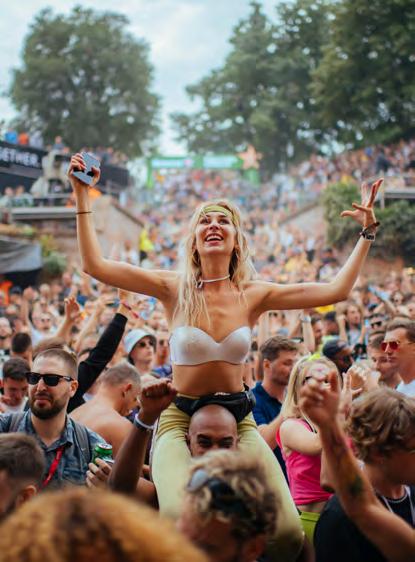
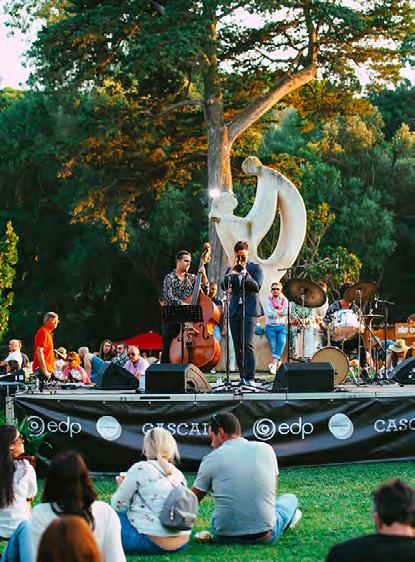
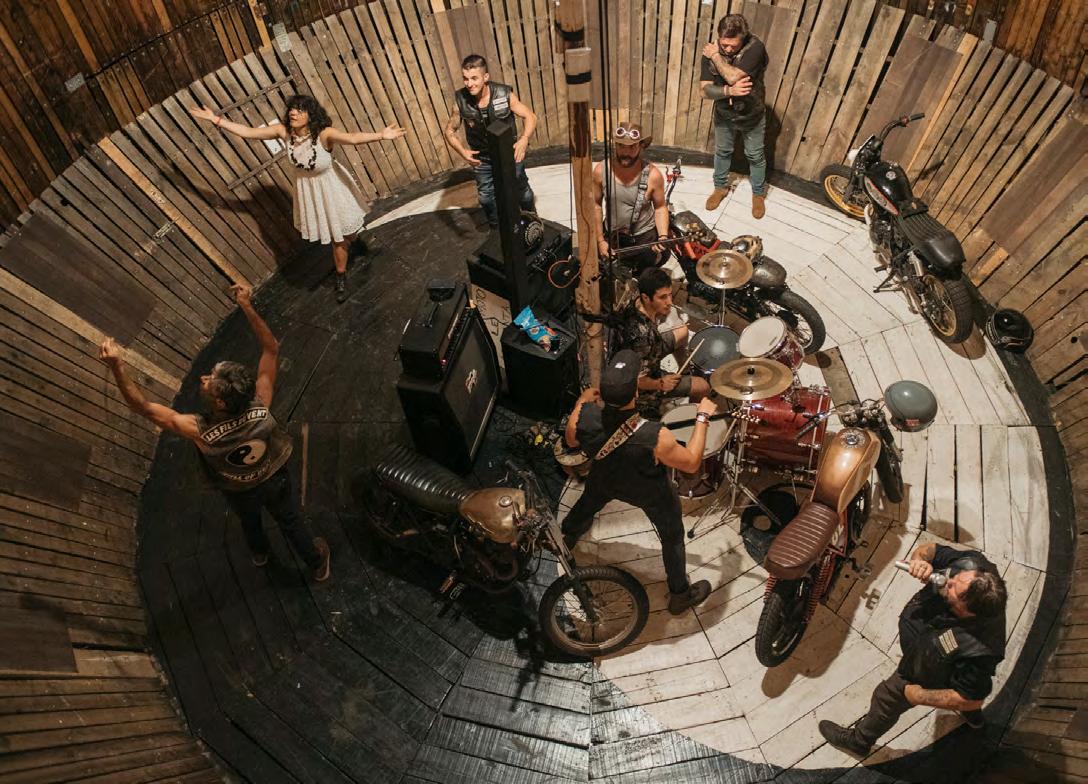
Even before the involuntary pandemic break, societies were facing historic challenges, including climate change; inclusion and diversity; and digitisation; to name a few examples. Then Covid broke out, followed by a war in the middle of Europe. And bringing with them new security issues; a lack of skilled workers and infrastructure; an energy crisis; exploding inflation; and, for many, the struggle for their own existence.
At times, the new challenges meant the older ones faded into the background. Activities were slowed down or temporarily stopped, and the time remaining to take action significantly decreased, while the task ahead became even more ambitious.
Sure, each individual was affected differently and so was each event. There have been success stories and record results from the 2022 festival season, but there have also been problems that have never been encountered before, greater exhaustion, and a
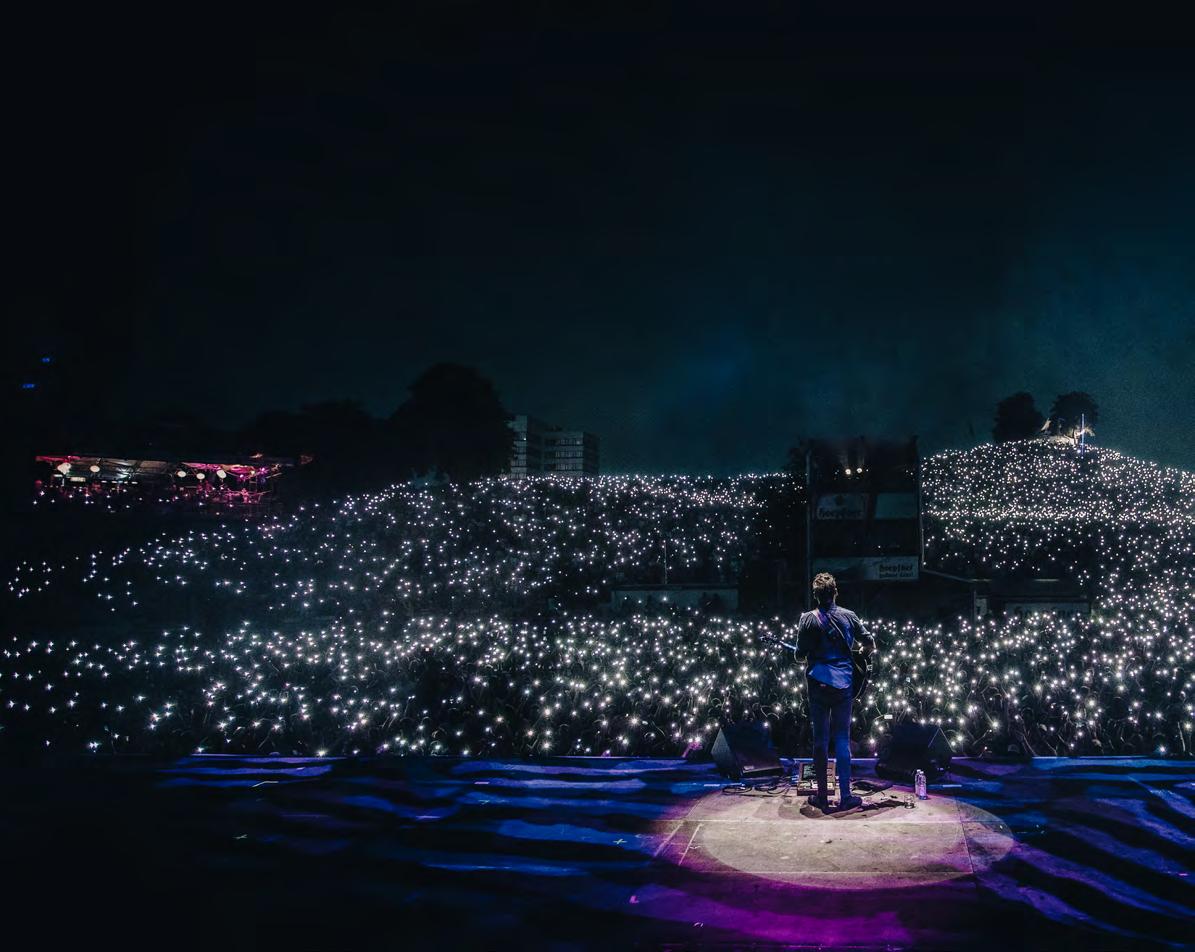
concerned outlook on a sometimes-uncertain future. Everyone in the industry has to face this, and let’s not fool ourselves: given the importance and size of the tasks ahead, we can only do it together. At times like this, strong networks and good partnerships take on a new and even more important meaning.
European music festivals laid the foundations for this almost a quarter of a century ago. YOUROPE (The European Festival Association) was launched in 1998 as an institution where festivals could meet and treat each other as equals, exchange knowledge, and define common values. To this day, this exchange is probably the most important element of the organisation, which is made up of 120 festivals and associated members from 30 European countries. It’s probably the only association where popular music festivals work together constructively on a pan-European level, regardless of whether they are independent, privately run festivals or part of the portfolio of one of the
global players on the festival market.
This quality makes YOUROPE special; it simultaneously creates opportunities and acknowledges that the responsibility to improve and further connect the European festival scene lies in us working together. YOUROPE has clearly recognised this responsibility, especially during the pandemic, a time when the defining feature of festivals – having special experiences with a like-minded crowd –meant that the entire cultural sector was put on hold precisely because of the risk this feature posed. So, while festivals were unable to take place, the association grew because the need for solidarity, exchange, and a common voice was greater than ever. YOUROPE was the institution chosen for support.
One of the few advantages of the pandemic was that it created moments to pause, which, in the case of YOUROPE, made it possible to devote time to defining future tasks and also applying for
corresponding public funding for the first time. The result is called 3F – Future-Fit Festivals, a three-year project co-financed by the Creative Europe programme of the EU as part of the support for European networks. 3F focuses primarily on three fundamental questions:
● What makes European festivals resilient to the challenges of the future?

● What does the responsible festival of the future look like, and how can it be achieved?
● How will the festivals of tomorrow ensure that they continue to play a relevant role in popular culture and in the lives of millions of young people?
Throughout the year, these questions were discussed publicly. Festival experts such as Fruzsina Szép (Superbloom Festival), Pascal Viot (Paléo Festival Nyon), Maiju Talvisto (Flow Festival), Jan Quiel (Wacken Open Air), and Christine White (New Orleans Jazz & Heritage Festival) took the exchange to the stages of the main industry gatherings on the continent – among them, the digital edition of ESNS in January 2022, as well as MaMa Music & Convention in Paris and BIME Pro conference in Bilbao.
3F builds on the structures and goals of YOUROPE. Over the years, the association has set up pioneering working groups and initiatives that use the expertise of the member festivals to develop joint solutions and increase the level of production of the entire industry. Among them are the YES Group (YOUROPE Event Safety Group) founded in 2006, the GO Group (Green Operations Europe) from 2011, and Take a Stand, probably the most important social awareness initiative in the festival sector, which is celebrating its fifth birthday in 2022.
During the course of the project, there will be a special focus on safety and reliability; climate change and the European Green Deal; and diversity and inclusion. Among the activities and publications that YOUROPE will produce together with the representatives of its network are:
● The annual European Festival Report (EFR) –which you are currently reading.
● Data and knowledge: ◗ Gathered with the help of annual surveys on the industry’s development and state.
◗ Providing tools, guides, research, and more in an emerging knowledge hub.
● The European Green Festival Roadmap 2030, the first of three special publications on the focus topics of 3F (one on each), is scheduled for publication in spring 2023. The roadmap aims to make the festival industry climate-friendly while not only meeting the goals of the European Green Deal but also the Sustainable Development Goals (SDGs) of the United Nations.
● Two further special publications with the working titles Inclusion & Diversity Toolset and 3F Safety Report will follow in 2024.
● Annual Europe-wide communication campaigns – such as #ImpossibleWithoutYouth, which in 2022, the European Year of Youth, highlighted the importance of the young generation for the festival sector.
● Training events, workshops, and seminars –in the areas of safety, environmental issues, communication, and human resources and wellbeing.
● Specialist contributions from YOUROPE’s pool of experts, as part of the association’s European Festival Conference and at the most important industry meetings for live music and entertainment.
This means 3F is about exchange between festivals, their stakeholders, and related cultural sectors that cross borders and industries. YOUROPE aims to be the representative body for the European festival industry as a whole – one that understands the business from all perspectives and can mediate appropriately. Expertise will be expanded on and used to develop the skills of those active throughout Europe so they can face the challenges of the future together. We will only make it by working together, by closely connecting the players in the wider festival industry. This will give us a loud collective voice that will be heard in key places, which will help us to create a future-proof industry that is attractive to new generations of both work colleagues and festivalgoers.
This independent pan-European and cross-industry think-tank aims to inspire people in the music festival and events industry to run their operations in a smarter and more sustainable way. This year, GO Group opened its usually exclusive workshop to a wider audience by cooperating with A Greener Festival at the Green Events and Innovations Conference (GEI) in April. Funded by 3F, GO Group brought content and speakers to the London-based event.
In the conference’s opening panel on European cooperation in the live music sector, YOUROPE presented three EU-funded festival projects that are creating social and sustainable solutions and tools for everyone in the events sector: Green Europe Experience (GEX), presented by Marie Sabot of We Love Green in France; Future Festival Tools, introduced by Julie’s Bicycle’s Chiara Badiali; and FUSION – Festivals as Social Innovation Incubators, presented by Roskilde Festival’s Kara Djurhuus. In a workshop hosted by GO Group co-founders Linnéa Svensson and Holger Jan Schmidt, participants shared their expectations of the European Green Festival Roadmap 2030, whilst another panel focused on reducing travel and energy emissions, and a fourth dealt with the future of the festival food industry. Speakers included Thomas Grunberg (GAUDINA/We Love Green) and Martin Thim (DTD Group/NorthSide Festival).
Composed of leading festival and live events health and safety experts, the YES Group started the year by contributing two sessions to the E3S (Event Safety & Security Summit) in London. They comprised a pair of interactive, scenario-based tabletops in which participants worked in groups, taking on specific roles in two specific environments: an outdoor music festival and an indoor arena event. The “learning in the round” philosophy saw the participant, the expert, and the facilitators in the groups constantly switching roles in order to learn the different functions and interact successfully.
The same training tool was delivered as part of the Cologne-based IBIT safety conference in November. The YES Group also contributed to other discussions including a panel dedicated to safety at
festivals featuring Henrik Bondo Nielsen (Roskilde Festival), Alexandra von Samson (Rock Am Ring, Lollapalooza Berlin, and more), and Sierk Janssen (Pinkpop Festival). The panellists discussed taking a more holistic approach to subjects that would incorporate artistic programming, climate change, environmental compatibility, inclusion, diversity, mental health, and communication, among others.
YES Group co-founder Professor Chris Kemp gave an insight into a project that took nearly five years to deliver: the iconic steps that now provide the gateway to Wembley Stadium in London. Taking into consideration compliance, safety concerns, a pandemic, structural integrity, and the need to test in a limited timeframe, the project provided stakeholders with a series of challenges and risks.
Established by YOUROPE in 2016, this group provides the opportunity to meet and share new knowledge in order to create a more efficient and professional marketing and communications environment in the festival sector. The group teamed up with Höme’s Festival Playground in Butjadingen, Germany, and the Future of Festivals fair and convention in Berlin and offered contributions and support on some of today’s hottest topics.
At the Festival Playground, the group organised a keynote interview with Vladyslav Yaremchuk from Ukrainian event Atlas Festival about the role that culture and festivals fulfil in times of war. Further workshops included The Role: Guest; and Crisis Communication: Cancellations, Eviction, Shistorm. While the former dealt with festivals’ on-site activations and how visitors can directly contribute to events, the latter involved an experience exchange and lessons learned from this year’s events.
YOUROPE experts featured in several discussions at Future of Festival conference in Berlin, including Andreas Groth Clausen who presented Roskilde Festival’s project Culturography, which visualises and studies how people form communities and discuss topics of interest online (see page 44). There was also a discussion about festivals becoming their own brands, featuring Cathi Krämer (Rock am Ring) and Stephan Thanscheidt (FKP Scorpio).
This year also saw the launch of a new working group for YOUROPE. The association, in cooperation with Future of Festivals Berlin, presented a two-day workshop exclusively dedicated to those acting behind the festival scenes. “Our teams are the most important asset we have. So, we should also give them our utmost attention,” said YOUROPE general secretary, Holger Jan Schmidt.
The event began with an industry health check after a unique year and asked: “How are you, 2022?”, with psychologist Prof Katja Ehrenberg. This was followed by a co-creation workshop in which the
participants imagined their ideal world of work. There was also a keynote address on the challenges of parenthood in the music industry and the festival sector. Participants joined a group workshop to discuss and develop solutions for a more familyfriendly work environment. Both were presented by the initiative Parenthood in Music. The following day featured a session on Demographic Change and Generational Handover in the Festival Industry. The presentation was based on a bachelor thesis supported by major German festival DAS FEST and given by Kevin Leider and Markus Wiersch from the festival’s management team.
Another session was Awareness Doesn’t Stop at the Backstage Door. It started with a talk about backstage behaviour featuring Karin Tonsern (Sisters of Music) and Viola Balser-Schuhmann (MS Dockville), moderated by Jule Detlefsen (Flutwelle), and continued as a workshop hosted by Sebastian Fleiter (Atelier Fleiter).
In spring 2021, YOUROPE reorganised its board. The aim was to achieve the greatest possible representation of member festivals and individuals from across the festival sector. Aspects such as gender balance, geographical diversity, the representation of independent festivals and those connected to multinational companies, as well as the expertise and skills of the individual board members were taken into account.

At YOUROPE’s General Assembly at ILMC 34 in London, Maiju Talvisto, who is responsible for artist relations at Flow Festival (FI), and Marta Pallarès, spokeswoman and head of press and PR at Primavera Sound Festival (ES), were elected to the board. They joined the festival directors Fruzsina Szép of Superbloom (DE), Mikolaj Ziolkovski of Open’er Festival (PL), and Christof Huber of OpenAir St. Gallen (CH), who became YOUROPE’s chairman.
Long-time board members Ivan Milivojev and Philippe Cornu left the board but still have key roles within the association and were appointed lifelong honorary members of YOUROPE.
Music festivals are not only places where people can realise their creative potential far beyond music and arts – they can also be platforms for social change. To help festivals achieve this role, experts on festivals and youth work have joined forces for a new project called FUSION – Festivals as Social Innovation Incubators. The EU-funded Erasmus+ project will produce a tailored suite of social innovation resources aimed at youth organisations and festivals. The goal is for FUSION to enable young people to use festivals as a stepping-stone to implement their own ideas, products, and technologies for the benefits of society.
YOUROPE’s social movement, Take a Stand, leads the project, joined by Roskilde Festival. The Danish festival has been fostering its philanthropic foundation for years. “Festivals are steppingstones for young people’s projects and ideas to change society,” said Prof. Kara Djurhuus, head of
philanthropy at Roskilde Festival, at this year’s GEI.
FUSION will produce an inspirational guide that will include examples from a range of European festivals, a toolbox explaining how to undertake social projects at festivals, and alliances between organisations to scale-up the projects.
At GEI, Djurhuus briefly described an example from the guide (which is expected to be released at the end of 2022): Tønder Festival is a small folk festival in the south of Denmark. It offers people living in a nearby refugee centre the opportunity to run a food stand at the festival called Taste the World, featuring dishes from their home countries. This helps refugees endure the long, gruelling asylum application process. “They have something to do, can hone their skills, receive a certificate in the end, and form a connection with the locals,” according to Djurhuus.
Other partners in the project are consulting agency Momentum (IE), youth organisation Backslash (ES), Istanbul Economic Research Institute (TR), and Canice Consulting (UK). Fusion-project.com
Additionally, Music Saves UA was launched in partnership with the Ukrainian Association of Music Events (UAME). The initiative uses international networks and the reach of its supporters to produce internationally broadcasted solidarity events with artists from all over the world, such as at the Brandenburg Gate in Berlin and on Museum Square in Amsterdam and with artists such as Ed Sheeran.
After Russia attacked Ukraine in February 2022, YOUROPE published an open letter against war and urging international cooperation. At the same time, a regular exchange with our colleagues at the Ukrainian Atlas Festival (which has been part of the association for the past five years) developed.
While festivals across Europe started taking place again this year, Ukrainian festivals have been unable to. Instead, a logistics centre for relief supplies was set up on the Atlas Festival grounds in the centre of Kyiv, to help those in affected areas.
European festivals also played their part by providing publicity, slots for Ukrainian artists, and fundraising. Swiss festival Zermatt Unplugged organised a charity concert as part of its event; the European Metal Festival Alliance – which includes Summer Breeze (DE), ARTmania (RO), and Dynamo Open Air (NL) – created a joint solidarity shirt; festivals such as Sziget (HU), Pohoda (SL), and Rock For People (CZ) ran panel discussions, information stands, performances by artists, and other activities; and Das Fest (DE) implemented a system for visitors to donate their cup deposit, raising more than €20,000 for Music Saves UA.

As of autumn, the funds collected are primarily being used for the evacuation of people from the warzone, as well as to help pay for their care and accommodation. And another logistics centre has been set up in the east of the country.
“It remains important that people stay aware of the topic and that support continues to be provided by peers in the industry,” says Vladyslav Yaremchuk of Atlas Festival. YOUROPE and its members help Yaremchuk and his colleagues come to industry events across Europe in order to provide them with a platform to speak up, reach new supporters, develop projects, and give our friends in Ukraine a future.
Musicsavesua.com
First published in 2012, YOUROPE’s Standard Terms, aimed at festivals that book international artists for live performances, is a public document. The basic version can be downloaded by anyone and is free to use provided it remains unchanged. YOUROPE members can ask for additional advice.
Since its first publication, the document has been revised and updated several times, most recently
The EU declared 2022 the European Year of Youth in order to shine “a light on the importance of European youth to build a better future – greener, more inclusive, and digital.” When the EU asked young people in a survey how they wanted to celebrate, the top answer was “with festivals.” This led to the foundation of #ImpossibleWithoutYOUth, a joint communication campaign between YOUROPE, the European Festivals Association (EFA), and the EU.
The project marked the first time that the two great European festival associations had worked together. Together, they created digital assets, including a video message. The campaign acknowledged the importance of young people to the festival sector and vice-versa, with the video message serving as a ‘thank you’ to young people everywhere for two years of sacrifice and for staying loyal to festivals. “Together, festivals, artists, and visitors create spaces in which millions of people experience culture, music, and arts every year. For more than two years, we were not able to do this –in this respect we can relate to the deprivation of the youth to a certain extent,” the two associations wrote in a joint statement.
More than 70 festivals and associated organisations from 28 countries supported the campaign. Many used the digital assets to issue a shout-out to young audiences on social media on the International Day of Youth (12 August).
YOUROPE general secretary Holger Jan Schmidt was invited to speak at the European Parliament in Brussels at the closing event of the European Year of Youth, sharing information about the campaign and stressing how important young people are to the festival sector.
Impossiblewithoutyouth.eu
in 2022 when an update to regulations on force majeure was realised.
YOUROPE’s legal advisor, Professor Dr Ralf Kitzberger, explained: “In the YOUROPE Standard Terms, we have stated that Covid-19 constitutes force majeure. If a festival has to cancel due to Covid up to three months before the event, the festival is not required to make any payments. However, if a festival has to cancel less than two months before the event, it has to pay the production costs mentioned in the contract.”
YOUROPE also negotiated specific terms for its members with major artist agencies such as William Morris Endeavor Entertainment (WME) and Creative Artists Agency (CAA).
ESNS Exchange (the European talent exchange programme formerly known as ETEP) was introduced in 2003 to make the ‘exchange’ of European artists across Europe possible on a greater scale. The programme facilitates the booking of European acts on festival bills outside their home countries and generates extensive media exposure for these artists in cooperation with Euroradio, export offices, and local media. This way, ESNS Exchange has boosted the international careers of up-and-coming artists from all over Europe with the help of funding by the European Union’s Creative Europe programme. In the last 20 years, the project helped break acts including Alma, Arlo Parks, Aurora, Dua Lipa, Fontaines D.C., Franz Ferdinand, Girl in Red, Idles, The Kooks, The Libertines, Mavi Phoenix, Milky Chance, Oscar and the Wolf, Shame, and Sigrid.
Acts featured in the programme are presented at ESNS in Groningen (Netherlands) in January each year, where bookers of participating festivals can check them out live and get in touch with their respective managements and agencies. The class of 2022 was, like the entire ESNS conference and festival, presented online due to Covid, and yet still achieved 353 shows by 148 emerging artists all over Europe.
The most popular acts among the festival bookers in 2022 – Swiss R&B act Priya Ragu and British minimalist rock group Yard Act – attracted 11 bookings each. The top 11 acts have a majority of female and female-fronted acts, reflecting the development towards more gender-balanced line-ups. This list also includes Ukrainian acts Alyona Alyona and Go_A, which demonstrates European festivals’ willingness to support the Ukrainian music scene during these trying times.
2022 ESNS Exchange Artist Chart
Priya Ragu (CH) 11 shows Yard Act (UK) 11 shows
CMAT (IE) 10 shows Alyona (UA) 9 shows
Enola Gay (IE) 9 shows Holly Humberstone (UK) 8 shows Altin Gün (NL) 7 shows Go_A (UA) 7 shows Joe & The Shitboys (FO) 7 shows Wet Leg (UK) 7 shows
Wu-LU (UK) 7 shows Esns-exchange.nl
After seven years as programme director at Hungary’s Sziget Festival and five years as festival director for Lollapalooza Berlin for Goodlive, Fruzsina Szép was asked to create a new festival brand for launch in 2020. However, the pandemic saw the first edition postponed not once but twice. Here she shares her philosophy about festivals and reflects on finally achieving a long-held dream.
What was it like for you and the Superbloom team during Covid?
It was always a childhood dream of mine to one day create my own festival. I love festivals; they give me great joy. I really enjoy visiting other events and seeing how my fantastic colleagues in the industry run theirs.
So, in 2019, when my boss at Goodlive asked me if I would be able to create a totally new festival brand at the Olympic Park and Stadium in Munich, I was delighted – particularly because I grew up in Munich.

We have a great bunch of people working on the team – I’m friends with most of them as well as being colleagues. And we put so much work into creating the first Superbloom. So, when it had to be postponed due to the pandemic, I cried. The whole team was devastated. But we did a lot of talking and mental-health coaching, and we kept everyone updated with what was happening. And there was anonymous access to psychiatric care for people who needed it and that the company paid for.
We worked towards restarting again in 2021, but very late we were told that the government wouldn’t allow events to happen, so we had to cancel again. It hit me very hard. My heart hurt so much, and I know it was the same for the team.
So, when Superbloom finally happened this year, I felt so proud. I also feel very thankful because of the support I had from my team.
This has always been very important to me. Maybe that’s a little ego part of me – basically, it’s because that’s the world I want to see. I would love to see a world that’s diverse, openminded, welcoming to everyone, and curious about all art forms, technologies, and other people’s lives and backgrounds. I wanted to create that world for 48 hours. And for the audience and the artists to be able to leave everything behind them. I want to see women, men, white, Black, old, young, LGBTQI+ people, and Disabled people.
What trends do you think will be important going ahead?
The overall experience is getting more and more important. It’s not enough to only think about the music; you have to offer more. That means more investment.
In terms of booking, for the last ten years I’ve been listening to so many people saying “we need the next generation of headliners.” We are now in this position. There’s a new wave of the previous midsize or emerging bands that are the new headliners.
I think fashion, lifestyle, and beauty will become a major part of festivals. We’re doing that already, and it’s been a success. This really could be a new revenue stream for festivals. We also invested a lot of money in an area called SuperBrain, which was about medicine, health, and science.
What is the importance of festivals to cultural life?
They provide the possibility for people or for communities to dive deep into a lot of optimism and positive feeling. People in the festival industry want to create an escape for the audience, for our team.
Humans aren’t robots; we need connection. These two years of pandemic taught us what it means to live isolated. People were so excited to come to Superbloom, and that’s why I’m doing festivals.
Read the full interview with Fruzsina at Iq-mag.net.
 © Philipp Kratzer
© Philipp Kratzer
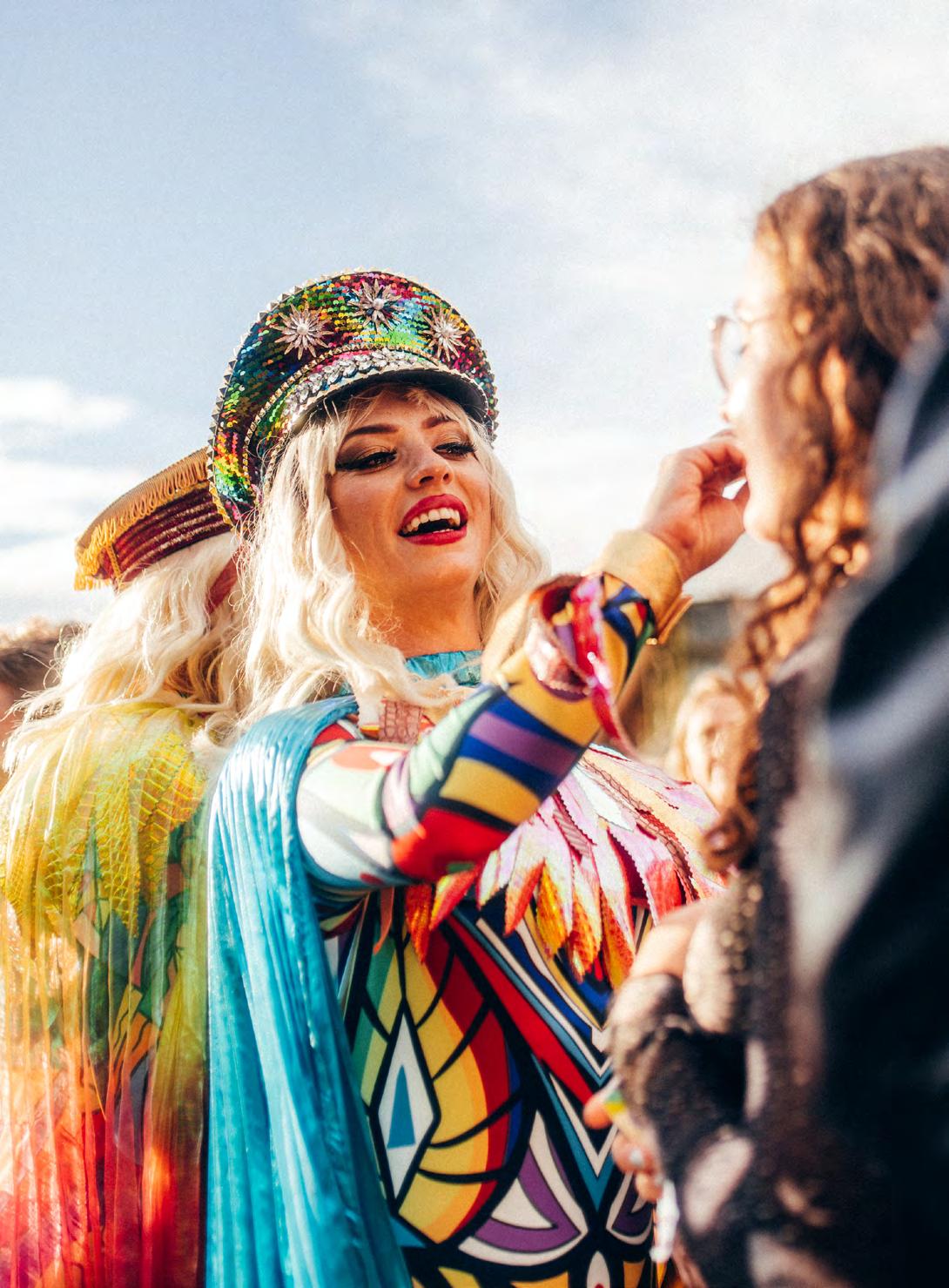
calculate the success of the activation when the measurements of success are not as sophisticated as they could be?
Well, thanks to a new big data collaboration with Aalborg University’s techno-anthropologists (yes, they do exist), Roskilde festival in Denmark might have solved these issues.
Together they have created a new online opensource platform called Culturography, which enables organisations to understand and visualise how their target group – and the broader public – engages in different aspects of societal issues online.
Commercial partnerships are key for most festivals, with many companies eager to benefit from the association with a festival brand and access to its audience. However, it’s important to create an activation that not only aligns with the company’s goals but matches the audience’s expectations without damaging the event’s reputation.
But how do you ensure your partnership brand is met with approval by festivalgoers? How do you know the partner you’re working with won’t be viewed negatively by them? And even if they are receptive to your brand/message, how do you
The online tool analyses social media posts from fans and the public that show where interests of different groups of people overlap. This use of big data enables festivals to understand whether a brand and its activities are a good fit.
“Every time we engage in a commercial partnership, there are three basic steps that we go through. There’s finding the partnership, signing the partnership, and then monetising it. This method was very helpful for all three,” says Roskilde’s head of partnerships, Andreas Groth Clausen. “Normally, when I present the idea of a partnership with Roskilde Festival to a company, it’s just me, and I’m hoping that the person I’m talking to is a fan of a particular festival or can see the idea. With this digital database, we can actually tell them what our audience is interested in. We can show them our fans

Sponsorship is a key revenue stream for festivals, whilst music and arts events are excellent ways for companies and charities to expose their messages to receptive audiences. Here we profile some of the most innovative partnerships in 2022.
are really engaged with some of their competitors, but they’re not interacting with them. So, the starting point changed significantly when we introduced these visualisations to our partners.”
The tool also helps the festival and the brand design an activation onsite that hits the appropriate demographics, by identifying the key touchpoints certain groups are interested in. This minimises the risk of running an activation that doesn’t chime with festivalgoers.
As a non-profit organisation, Roskilde festival is making the software available to everyone. But there’s still some development required – currently the data is interpreted by experts from the university, whilst the goal is to develop the software further so that it removes this requirement.
“That’s the last challenge for us – to build a tool that’s just plug-and-play for everybody. As good as it is right now, it’s still a work in progress, but we can make it even better. We are going to do that in the years to come,” says Groth Clausen. culturography.com
FKP Scorpio festivals Hurricane, Southside, Highfield, and M’era Luna launched a new concept for waste management in summer ‘22. “Trasholution” incentivises people to pick up litter by gamifying the process – and it was used to benefit social causes, too. Every full rubbish bag was counted by the festival and triggered a donation of €1 to social projects in the region of each festival. This was live-tracked and visible for all festivalgoers, further motivating them to hand in their rubbish. As soon as a donation goal was achieved, the German company launched the counter for the next one. “This is so important because if the festival waste is separated cleanly, its recyclable materials can be sorted out much better and returned to the material cycle,” says FKP Scorpio managing director Stephan Thanscheidt. “So, we’re achieving two good things with one concept: donations for social causes, as well as more sustainability.”
As one of the world’s first carbon-neutral festivals, Finland’s Flow fest is renowned for its environmentally friendly credentials. So, it was especially important for them to work with brands that shared its ethos.
Polestar’s commitment to bring 100% electric premium car products to the world, led them to partner with the Superstruct Entertainment-owned event to bring their brand statements to Flow’s highly eco-conscious fan community.
With a campaign aimed at building brand awareness and affinity in Finland, Polestar gave selected ticket holders exclusive drives to the festival as well as pairing with Tiilikello venue for an exclusive art installation, matching both the festival and brand’s minimalist image.
With 2022 being the first full year back after the pandemic, Bacardí partnered with Live Nation in the UK to join the celebrations for the return of festivals, signing a multi-year deal to be the official spirit partner across ten events.
A drinks brand could be considered an expected sponsor for a festival, which was exactly what inspired Bacardí to create spectacular spaces full of thoughtful surprises and touches.

The partners created physical spaces that became destinations in their own right at festivals. Each was tailored to the festival audience’s tastes and preferences, such as Casa Bacardí (at Reading, Parklife, and Wireless), a two-story dance destination programmed with world-renowned DJs and premium rum cocktails; or Haçienda Patrón (at Wilderness and Latitude), a Tulum-inspired space.
Bacardí also used its spaces creatively by inviting fans to experience its brands in new ways. At Latitude and Wilderness, professional Bacardí mixologists offered cocktail-making classes for attendees. Bacardí also programmed established and up-andcoming DJs at Casa Bacardí to support its Music Liberates Music initiative, an ongoing programme designed to champion underrepresented voices in the music industry.
The results reached 3m in-person attendees and 10m followers on social media.
Jay Williamson, VP of marketing partnerships for Live Nation UK, said: “The Bacardí team truly understands how live music is one of the rare things that can bring people together, and the opportunity to work with them this summer on creating lifelong memories for fans was an incredible privilege.”
Have you ever heard an endangered animal sing metal? Well, now’s your chance. This year, German festival Wacken Open Air partnered with brewery Krombacher to put together a band made up of rare native species
Above: Live Nation and Bacardi at Wireless Festival in the UK © Samuli Pentti Opposite: The Power Hour at Defqon.1 saw the Red Bull helicopter join thousands of fans © Vincent van den Boogaard
that are under threat: Growling Creatures.
To raise awareness of the plight of these animals, three songs featuring the calls of a variety of animals were released by the ‘group.’ Nest Destroyer included the sounds of the cuckoo and grey shrike over a melodic death metal tune. The brown hare and lynx contributed to metalcore banger Furry Inferno And the female bison and grey seal joined together for death metal song Small Number Of The Beast
The songs were released on Spotify and videos were posted on YouTube and social channels, as well as running on stage screens between bands. Band T-shirts were also sold.
All proceeds from the campaign will be donated to the Nature and Biodiversity Conservation Union (NABU) of Germany.
“The audience response, as well as the media was very positive,” says festival spokesman Peter Klapproth. “All three songs were professionally produced and went down well in the metal scene. The campaign created a reach of over 8m, which made the whole cooperation very successful for all parties involved and most importantly created the awareness for the endangered species.”
The partnership was such a success that plans are already in place to continue it next year.
While audiences filled their ears with music from the likes of The Chemical Brothers, Arctic Monkeys, and Disclosure, new Portuguese festival MEO Kalorama also filled their eyes with art, thanks to a partnership with Lisbon-based cultural platform Underdogs.
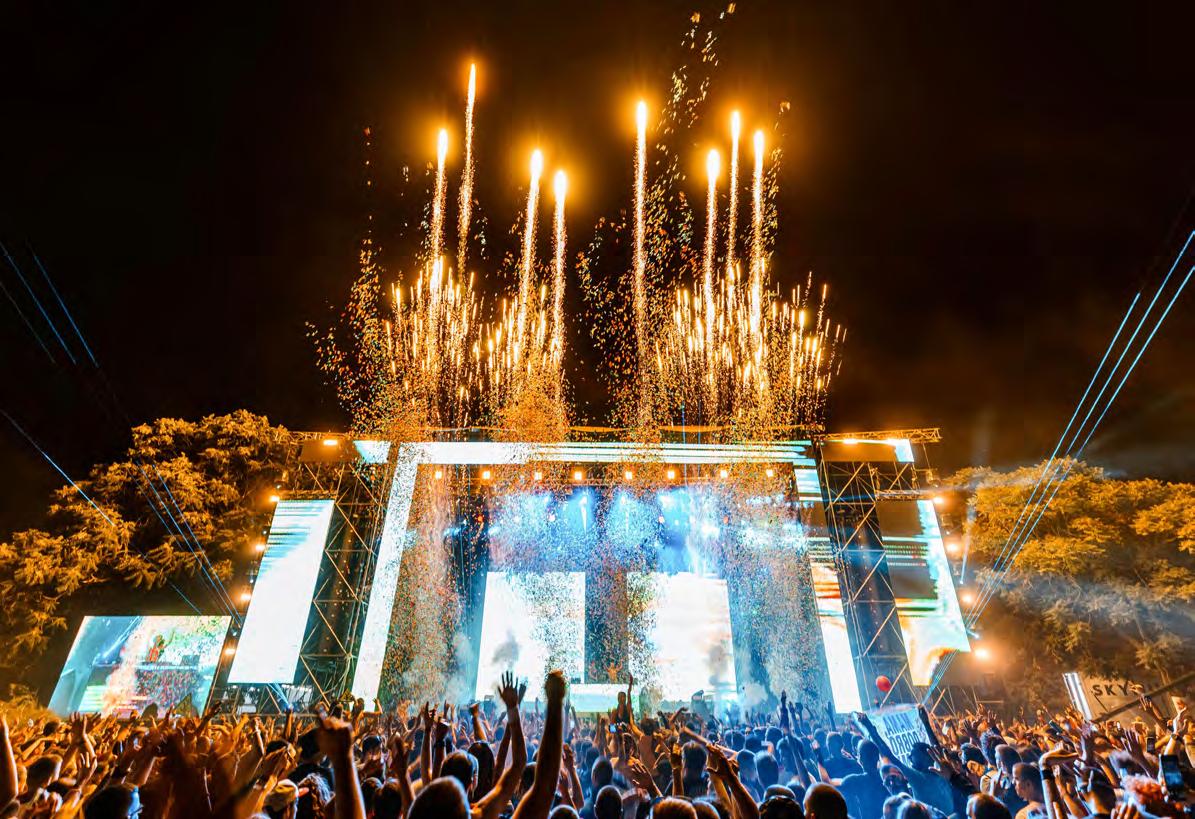
Promoter Last Tour invited the art organisation to undertake three different initiatives that involved several people from the Underdogs’ diverse roster of Portuguese and international artists.
The first part of this collaboration was a large-scale intervention by Portuguese visual artist AkaCorleone called Temple of Sound, which saw the entire main stage decorated with work, as part of his ongoing Temple of Light project.
Elsewhere, an art gallery was built dedicated to displaying over 30 exclusive Underdogs artworks by a diversity of artists, including Felipe Pantone, Okuda San Miguel, Tamara Alves, Vhils, Wasted Rita, and many others.
And sustainability was a key theme for the third intervention – emerging artist Madalena Pequito ran a workshop of festivalgoers that positioned art as a pillar for sustainability. She invited the audience to illustrate the 17 sustainable development goals established by the United Nations.
Most people who work on festivals never get to experience it as audiences do. But for its 10th anniversary in 2022, Romanian festival Jazz in the Park set about changing that. Thanks to a partnership with supermarket Mega Image, the festival bought six GoPro cameras and set-up a station that saw people borrow a camera for 45 minutes at a time and record their experience. The 180 people shot 96 hours of footage, which was edited into a “people’s aftermovie,” which was released on social media.
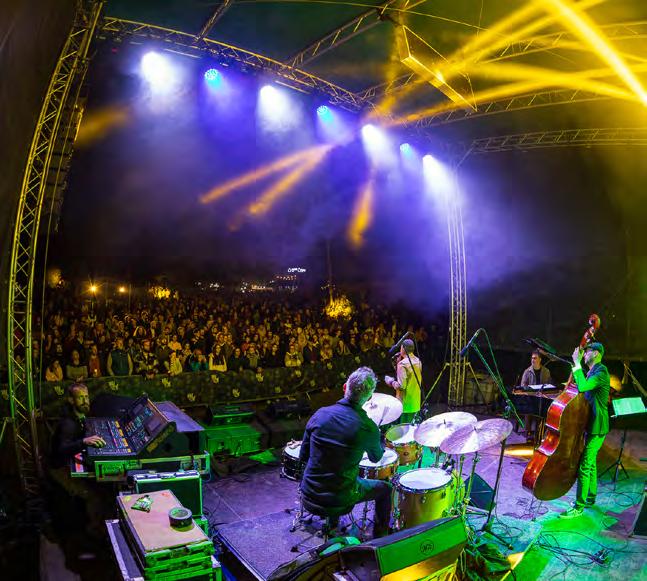
“We were a bit nervous about people’s response[s] to being invited to film,” admits festival founder and manager Alin Vaida. “But the cameras were used almost all the time. People love the opportunity to just fool around and film their family, their preferred concerts, and so on. After the first day, people started asking about where they could get the cameras, and there was a good level of interest in the activation.”
The resulting film is unlike any traditional marketing movie, showing the event in a truly authentic manner, as even some of the ‘less desirable’ elements of the event, (such as the poor weather on the first two days) were included.
Communications manager Sergiu Topan says when the first draft arrived from the editor, he ran into Vaida’s office and shouted “It’s great!”
Vaida adds: “We are a relatively small office, and it’s usually quite noisy. But when the team got the video, there was just seven minutes of total silence. People were trying to be poker-faced about it, but I could see some of them wiping away tears. It was amazing. Watching the film was the first proof in 10 or 11 months or more that we had done something brilliant.”
He says sponsor Mega Image’s response was “really good.” So much so that there are now plans to increase the budget next year so they can buy more GoPros and have more people involved. “The word-of-mouth regarding the brand activation was excellent, too,” he adds.
With global events such as the pandemic, the economic crisis, and the war in Ukraine continuing to impact people’s lives, organisers of EXIT Festival in Serbia had a special focus on mental health at the 2022 edition.
The walls of the festival site’s fortress were painted with words of emotional and psychological support, while the messages were also presented on the screens of the big stages.
Many people have encountered anxiety, fear, depression, loneliness, and other related difficulties in the past two years. This is why the festival further strengthened its relationship with Novi Sad-based suicide prevention and mental health support organisation Srce Centre. The festival has worked with the centre for years, and this year the partnership was extended to bring more mental support locations
to the fortress, namely at the Foodland, the OPENS State of EXIT zone, and in the EXIT camp.
And it’s not only the audience that could get help. EXIT says it is the only organisation in the music industry with two mental health experts on the team throughout the year. Over the course of the festival, other psychologists and psychotherapists were onsite to support the backstage teams and performers whenever needed.
One of the key moments during Dutch hardstyle festival Defqon.1 is the Power Hour – which sees attendees gather at the main stage for 60 minutes of DJs mixing high-energy tunes with lightning transitions – it’s an intense moment that sees the audience go crazy.
Festival organiser Q-dance (a brand of Superstruct Entertainment-owned ID&T) partnered with Red Bull to make this year’s Power Hour truly something to remember. Opening with Red Bull athlete Bicho Carrera, it featured an aerial display that included multiple Red Bull assets such as an aerobatic flight and the helicopter from The Flying Bulls. During the left-to-right moment, which sees the whole crowd dancing from side to side, the Red Bull helicopter joined in, hovering from left to right, too. Additional activation included special Power Hour-branded Red Bull four-packs, which were sold onsite and in the campsites and included an illuminated LED cup.
This moment was captured in video and generated
significant reach and viewership over digital platforms on both Red Bull and Defqon.1 channels.
“We had almost 4m (organic) total online reach and counting,” says Q-dance brand partnerships manager Jack van Mourik. “When answering the question ‘How would you rate the Red Bull show moments during Power Hour?’ the average score was an 8.59 out of 10 in our Defqon.1 survey and was experienced as ‘very positive.’”
For many years, German supermarket brand PENNY has supported the German festival scene – most prominently with its sponsorship of Parookaville. But for the return after Covid, it wanted to expand its help. So multifaceted festivals platform Höme used a survey of 37,000 festivalgoers to find out how the 2,150-store company could offer the best support. What they discovered led them to develop a broad range of activations across multiple festivals under a new sub-brand, PENNY.Festivals.
Alongside its activations with Parookaville, which include two big stores, the DJ-Tower with its legendary pre-party on Thursday and up to 20,000 visitors, the brand ran smaller and different modules at 16 festivals.

Among the activations were the PENNY.Festivals Shuttle, which saw festivalgoers at Burning Beach and Happiness Festival able to leave the festival site free of charge, drive to the nearest PENNY branch, and stock up on food and essentials. At other events,
such as Ab geht die Lutzi Festival and Rocken am Brocken, the smaller PENNY.Festivals Kiosk was set-up; while elsewhere the PENNY.Festivals Food For Good Foodtruck offered vegetarian and vegan food. A number of festivals had digital partnerships. And it wasn’t just audiences that benefitted from the support. PENNY also supported November 2022 conference Festival Playground, which brought together 150 different festivals of different sizes and genres.
“With this new concept, PENNY is once again strengthening its position as a reliable partner and supporter of the German festival industry,” says Höme’s Laura Pfeiffer.
“The response from the audience was great. For example, the Kiosk was always almost completely sold out after the first day (even though we ordered more than twice as much from the first to the second time). PENNY saw recognition at a huge variety of events. Our Instagram channel reached 10,000 followers within seven months. Festival attendees, especially from smaller festivals, are always happy to find our services at these events because it’s unusual to find big brands like PENNY there.”
Pfeiffer says this new approach is part of a three-year plan with the brand. “The first year was all about testing. Next year is all about improvements and taking the learnings from the first year to another level. Last but not least, the issue of scalability and the long-term implementation should also not be ignored.”
The 5,000-capacity ArcTanGent is an award-winning independent festival that takes place in the southwest of the UK. Featuring more than 100 acts across five stages, it prides itself on its unique line-ups and excellent quality food and drinks. Co-founder and festival director Goc O’Callaghan shares what it took to get the gates open again in 2022.
How did you and the ArcTanGent team get through the pandemic?
ArcTanGent closed its gates in August 2019 and due to the pandemic, did not open them again until August 2022. As an independent festival with a small team, navigating the pandemic was less than enjoyable.
Initially, ArcTanGent – at the time a 10,000-capacity festival, which curated an international line-up and consequently attracted an international crowd – was deemed ‘culturally insignificant’ in the first round of the UK government’s Cultural Relief Funding. Thankfully, we managed to secure this funding in the second round, although it only allowed us to tread water until we could open the gates again.
Through a crowd-funder campaign, ArcTanGent received an overwhelming amount of support from our audience, ensuring we could get through the pandemic return in August 2022. Our audience, in the most part, have been nothing but supportive, not only through the crowd-funder but in understanding the extenuating circumstances the festival faced. The emotional and mental impact of the threat that ArcTanGent faced as a result of Covid-19 was nothing short of brutal. Having worked tirelessly to build a business that was on track to really prove its salts in 2020, and to then have that all pulled away from you through no fault of your own, was a tough place to find yourself.
There’s an argument that you only get the extreme highs if you have experienced the extreme lows and ArcTanGent 2022 was proof of that: the festival returned in a new and improved state, the vibe was electric, and undoubtedly it was our best festival to date.
ArcTanGent is a proudly independent festival – what do you think is the importance of retaining that independence?
Authenticity. The independent festival sector thrives due to the undisputable passion that goes into running such events. The ethos of the owners and operators of independent festivals shines through, and recognition is given by the audience through loyalty to their chosen festival through repeat patronage, early ticket purchasing, and campaign
supports. Consequently, the atmosphere is escalated on site – there’s an understanding that everyone is there for the same reason: to have the best experience possible.
What trends do you think we will see play out in the next few years at festivals?
Increasingly, festivals are using RFID cashless technology for onsite payments. While this isn’t a new concept, it’s becoming common-place thanks to the escalation of contactless payments from Covid-19.
I also think there will be a shift towards festivals integrating with the metaverse.
What challenges does the festival industry face, and how are you aiming to approach them?

Oversaturation and festivals falling victim to the ‘copy-paste’ model. The UK festival market is already saturated, and with the increasing number of degrees in event management with a focus on festivals, the market will see many more pop up. Only the innovative concept-based festivals or those with a unique positioning will survive.
Can you talk us through some of the most innovative things you've seen at this year's festivals?
ArcTanGent took part in a European research project called CrowdDNA. This collaborative project between seven organisations from four European countries funded by the European Commission aims to enable a new generation of “crowd technologies”: a system that prevents deaths, minimises discomfort, and maximises efficiency in the management of crowds. ArcTanGent was one of the observatories at which crowd movement within a festival environment was captured. The data will be analysed and used to enhance crowd safety.
What role do festivals play in the cultural landscape?
Festivals provide an escapism from the real world where everyday pressures are increasing, on-demand culture is thriving, and the ability to wind down is a near-impossibility. Festivals are an environment in which play, simple fun, and experimentation can take place, offering the perfect offset from the strains of everyday life. For this reason, the festival industry will continue to grow and will continue to be a sculptor of culture.
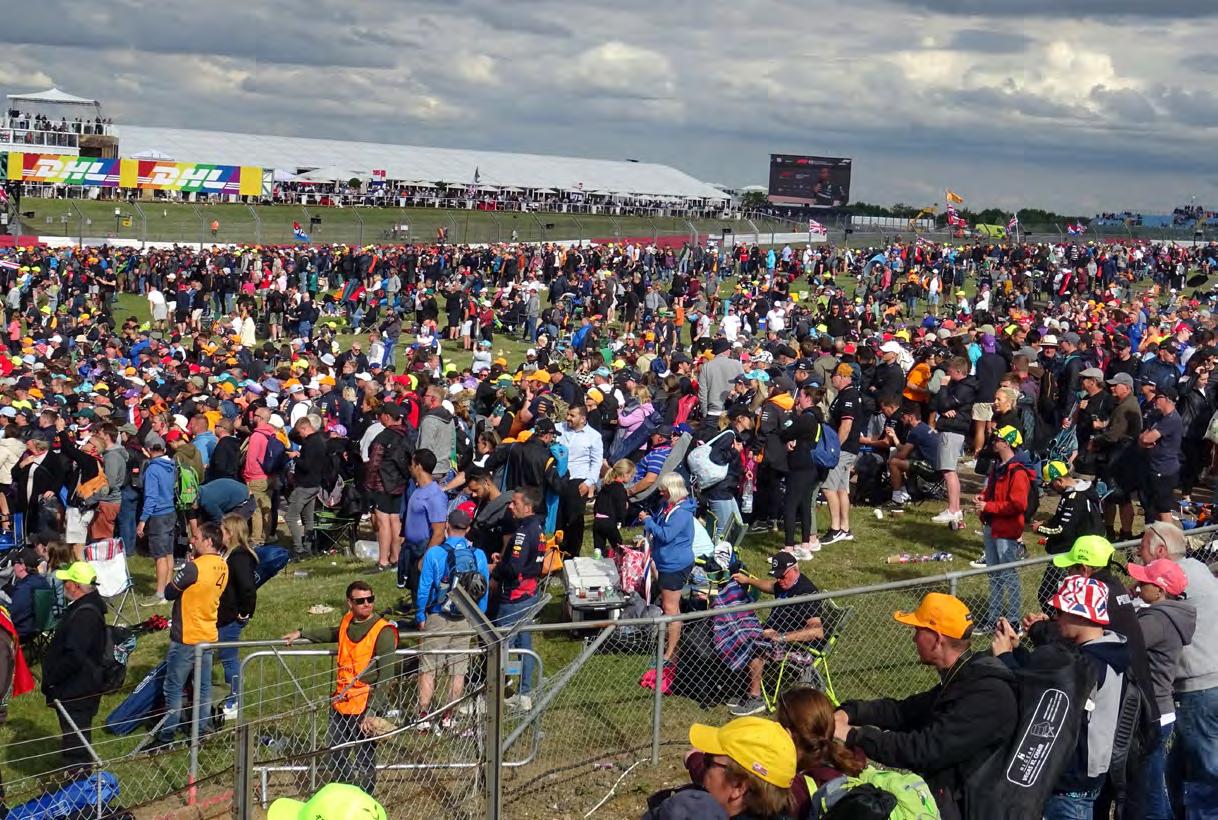 of Mind
of Mind
Iworked at and attended many types of event this summer, and it’s clear that under the surface, all is not well. Events with resilient, robust, and forward-looking planning, communication, and management strategies seem to have fared best. Others have been blindsided by elements that arose for the first time.
As a result of staff shortages, there’s been a reduction in the competence, quality, and knowledge of staff. Add in the blocking or severing of supply chains, and it’s become much harder for festival managements to integrate the elements required for the gold standard provision expected. What’s clear is there’s a link between some of the major challenges and the disparity between wages paid by different providers.
My experience this summer showed that the festival industry is not just feeling the effects inside
Chris Kemp, CEO
Over Matter Consultancy, considers if we need a new approach to the summer’s multiple challenges.
its own bubble but those passed on across the events industry. These issues come as a result of a post-Covid boom, the repercussions of the war in Ukraine, the challenges of Brexit, and an impending Eurozone economic crash, with price inflation across the board.
In normal circumstances (if there is such a thing) just one of these tests would be enough to cause severe challenges to festivals. However, to have them all at once has been in some cases devastating. They cannot be dealt with in isolation because they’re all linked – bridging physical, cultural, social, economic, human, technological, and environmental factors.
Human resource is central to this issue. Before Covid, events were blessed with a plethora of employees who could manage, secure, steward, promote, administrate, and develop at the highest levels, as well as people who were operationally sound. Three years on, it’s estimated that more than 450,000 people across Europe have moved out of the industry.
Many of these movements have been spurred on by the institution of zero-hours contracts, the laying-off of staff, people on furlough schemes, and because some sought better-paying or more secure work, with sociable hours.
However, those being leached from the business are at both ends: some in senior roles and many more on the ground in operational roles that keep events running. Festivals across Europe who use volunteers and large numbers of out-of-house security were having to vie with other companies to be given primary access to their expected staff or those of similar quality.
With major events commanding a premium for security and stewarding roles far above the market price, many companies sent their more experienced staff to these events, leaving less-knowledgeable staff to deliver on the ground in places which needed experience. I found that for events such as golf majors, grands prix, air shows, and top-flight football and rugby tournaments, staff were being paid a premium, often leaving festivals and sports such as cricket unable to be provided for.
Speaking to festivals across Europe, the main challenges were getting properly qualified staff with experiential knowledge to work for the money on offer; and an expectancy from promoters that the staff on duty will be of the right level and quality to perform, even though prices might be lower than usual.
Equally, of the festivals reliant on volunteers that I spoke to, all suffered between a 10% and 33% shortfall on expected volunteer numbers. With a new working group of Gen Z coming on-stream, there’s a different mindset about working as a volunteer, and the improvement of the staff experience is at the top of the list.
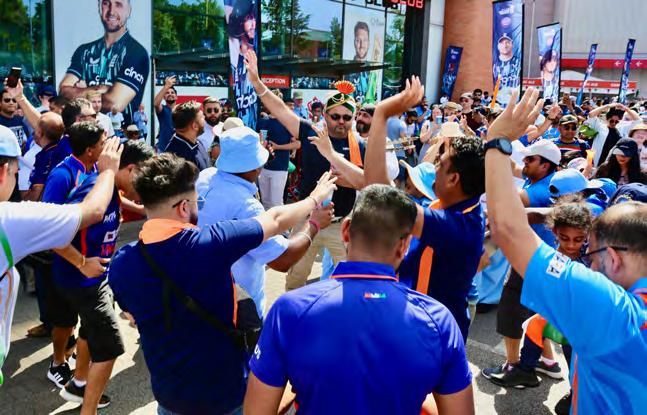
Supply chain problems were compounded by a huge rise in the number of festivals across Europe, without a corresponding rise in equipment or time to get it between events. While this has been a problem
in the past, it was dismissed because “festivals will always make it work.” After a shaky start and one cancelled festival in Germany, the industry fell into a rhythm, slowly rescued the broken supply chains, and stabilised the systems. Some festivals had challenges with the size of PAs and lighting rigs, but most were resourceful in their delivery or found someone who came to the rescue.
Last year’s test events for coming out of Covid paid dividends, as the lessons learned were fed into the industry. Companies moving out of the UK had all their staff gain a European driving licence, meaning drivers from the UK could take on more than one leg of a tour or from festival to festival.
The increasing number of festivals puts a strain on an already struggling resource market. Large amounts of subcontracting took place, and at some events, staff from other parts of the organisation, who were not trained in security and crowd management, were being used to man gates and other tasks. In some cases, security providers were falling short in the numbers that they were able to raise for some events, owing to less core staff being available. These are just two occupational hazards, which are appearing as money gets tighter while prices go up.
The customer will eventually feel the results, as pressure on economic markets and increasing supply prices and staff pushes up the cost of an experience. We’re reaching a Catch-22 situation where everybody knows that working together with other organisations to guarantee work for a set price might just keep the industry turning but also that the small cracks appearing could wrench it apart.
All that said, it’s not all disturbing news, and for millions of people across the world, their experience of festivals has been amazing. The telling point will be whether the industry can keep going the way it is, and whether their emergency, crisis, and business continuity actions can provide stability in this environment. We know there are answers to these issues, but are we asking the right questions to get the answers that we need? Is it time to use a more bottom-up approach, as our mainly top-down delivery seems to be moving on shaky ground?
The largest group of workers is the lower-skilled staff such as stagehands and security staff. These roles frequently come with little job security or steady income, although in most countries this was ameliorated by the fact there were plenty of shows to work at. However, when Covid-19 swept the globe, these roles were among the first to be cut, before companies then started letting go of staff from the inner core – the people with most of the knowledge and training.
In Denmark, a survey showed that in early 2022 there were 17% fewer jobs within the core workforce than in early 2019. This is understandable, as the industry basically stopped existing.
However, cutting the inner core reduces the knowledge in our industry. We should have stopped and considered what impact this would have on our flexible ring of workforce.
Now we’re back after Covid, we’re left with a new form of crisis: a lack of knowledge and experience. We are in the middle of retraining, restaffing and recovering our industry, and this will, without doubt, cause challenges and new risks.
Our way of looking at event risks is getting “back to normal.” We are following the guides that we followed before the crisis. The problem is that most guides for safety at events are related to a proximal risk for the event, the risk of something going wrong and how we can solve it. The Danish guide to safety at major outdoor music events has 134 risks a
The live industry has been booming for years, during which time it has developed its own legal framework, guidelines, and body of knowledge. Unfortunately, it still has a long way to go with the application of Business Continuity Management (BCM).
BCM is a holistic management process through which an organisation’s threats are determined and how they can influence the business is analysed. Then, procedures are put in place to ensure resilience in the organisation, so it can respond effectively and protect the interests of the organisation, its stakeholders, reputation, brand, and value-creating activities.
As an industry, we’re very familiar with risk assessments for events. But we’re not so good at evaluating the impact of threats to our organisations.
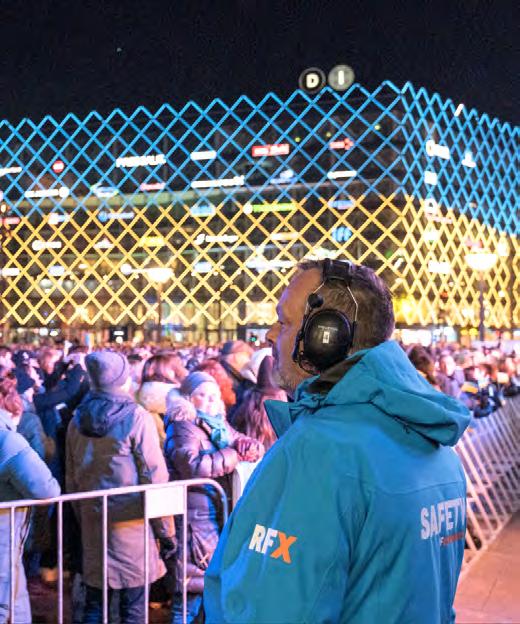
For example, this summer it’s been very difficult to provide the proper number of staff for events. Everyone felt the challenge, and those who felt they had enough staff most likely experienced a decrease in quality. While this is certainly due to the effects of the pandemic, perhaps it could have been foreseen by implementing BCM.
A traditional company structure in the live music business is an organisation built around a core workforce, supported by a flexible ring of part-time workers, consultants, technical specialists, contract workers, and others. This is cost-effective, flexible, and enables some people to reach higher quality in specific niche tasks.
promoter is expected to look at. All of them are proximal risks. With less knowledge, the nuances of the risks might not be implemented.
We will most likely look at risks in the same way as we did before, but things have changed. We can no longer rely on our teams having the experience to see when things are turning into a risk, let alone know how they will react based on knowledge and experience or even that they will react according to our procedures. This is because the experience and the knowledge of our inner core has been reduced, and as a result, the quality has been reduced even further in the flexible ring of casual workers.
So how could BCM help? BCM starts with understanding all risks to the organisation, from event risks to societal and organisational issues. It requires companies to identify the main challenges in the short and longer terms.
It starts with creating a business impact analysis (BIA). Here, the organisation’s business functions are mapped out to find out what can disrupt them. There needs to be an overview of the potential effects on financial; life and safety; regulatory; legal and contractual; reputation and so forth.
Tony Duncan argued that in our industry we tend to look more at short-term costs where we focus more on the event than the organisation. So, we can start with what he calls an “event impact analysis,” where the outcome of a single event is analysed. Based on this, we might be able to find the more long-term risks.
We can now look at who our stakeholders are. Who are the most important ones in the flexible ring for the event? By analysing this, promoters can see
which stakeholders have the most power (influence) and the most interest in the event. So, if you have staff in the flexible ring that influence the event a lot, now is the time to focus on them.
As a part of the BIA, a recovery time objectives (RTO) is set. How much time do you need to recover from the business impact, and how long can your organisation survive with the impact? The goal here is to reduce the time needed to recover, so it’s less than the time you have available. To do this, look at the process, the technology, and the people involved. If your people are new or less qualified than previous ones, you need to address how to regain your strength.
This can only be done by cooperation between all parties. Are you really working with all your stakeholders to reach a common goal?
Getting back from a crisis is expensive and time-consuming. It takes time to recruit, train, and to gain the basic experience. But we are all in it together, and while it used to be possible to outsource a contract or an order with short notice, now is the time to align your expectations with your stakeholders as early as possible. Everyone needs to know what’s expected of the coming year in order to get our beloved industry back in shape.
We were good at cooperating during the crisis of Covid, but we are not done yet. We are still in a crisis. If the show must go on in a good way, we need to work in a timely manner and understand each other’s goals and intentions for the next year further ahead. By using BCM methods for organisational challenges instead of just event risks, we will save money in the long run and provide a better quality for our customers.
Above: Crowds at Sunny Hill Festival © Prishtina
Opposite: RFX staff work across events, sharing knowledge learned at Roskilde festival
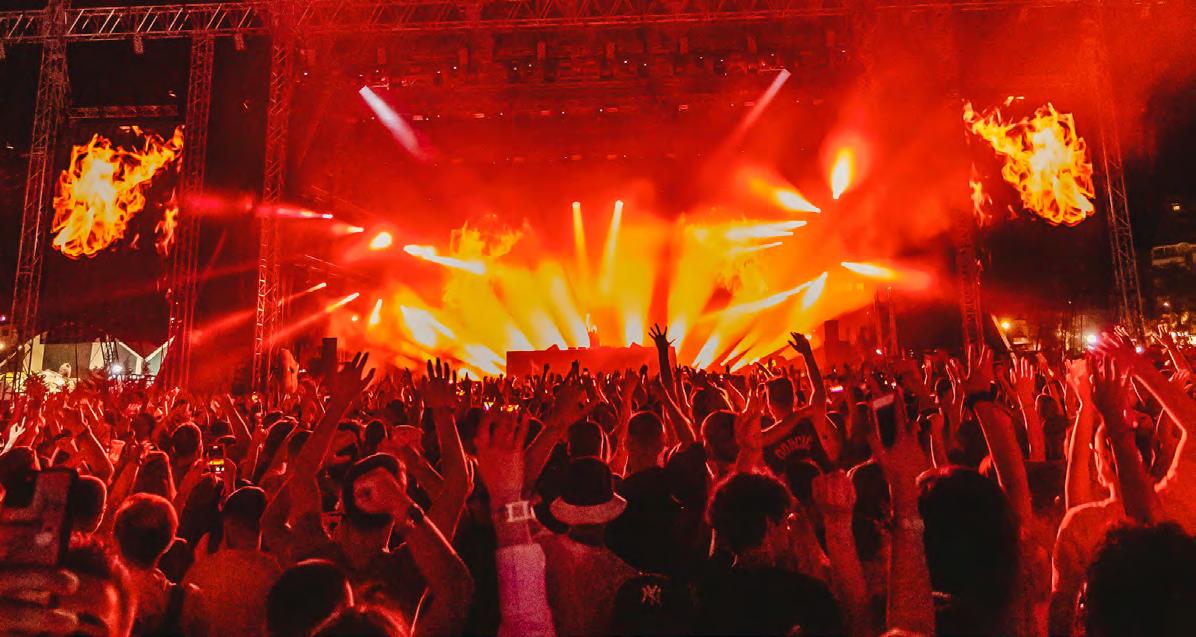
Even before the start of this year’s festival season, the topics that defined the whole season had been widely discussed. Theories of staff shortages or the expected behaviour of the audience after two years without events were debated. However, during the season itself, it wasn’t about theories. Everything was about perseverance. And now, we must focus on ensuring the situation doesn’t repeat itself.
No topic was more pressing yet, at the same time, treated so negligently as staff shortages.
The issue was discussed during a Crowd Safety Conference in Germany in November 2021 – with some sobering findings: service providers reported staff shortages of up to 50%.
“At some point, I no longer wanted to know how much staff they were missing – I just wanted to know if they could do the job,” is a quotation which describes the problem in its full extent. It is not surprising that the author wishes to remain anonymous.
So, what does this mean for next season? Not only must personnel be acquired on a large-scale, but they must also be trained – at many different levels of knowledge. The loss of experience can only be compensated for to a limited extent by pure knowledge transfer – although that doesn’t mean that it should not at least be attempted.
Given the large amount of personnel we lack, online training is probably the only option for training people quickly and at short notice. However, in terms of longevity of knowledge transfer, this is the worst solution. If we solve this task well, by combining theoretical and practical knowledge transfer in combination with a patronage system, it increases long-term staff retention. But we must also rethink traditional teaching – use the devices and
platforms used by the target group: reels, stories, or gaming. Personal professional development will be one of the key factors, not only for training but also for staff retention.
After the event at Astroworld Festival in November 2021, where ten people died and hundreds were injured in a fatal crowd crush, social media reports about show stops and an increasing awareness shown by artists like Billie Eilish, Kehlani, and Adele accumulated.
This is a development that must be supported and reinforced. To ensure this behaviour isn’t limited to artists already known for their good contact with the audience, it requires not only the appropriate contractual agreements but support in terms of recognition and the necessary positive reaction. Artists are not crowd management professionals – they see the obvious events, not (or very rarely) their development. Intervening in time before a problem arises requires not only experience in recognising such situations, but it also requires artists who either trust the information or at least follow the rules. “Educating the artist” is a challenging approach, but as there are already many artists that are willing to participate in audience care, this opportunity should not be passed up.
Fortunately, the 2022 festival season was free from catastrophes and fatalities. But unfortunately, this was not the case for all events this year. At the Champions League Final in Paris, chaos during ingress caused the police to use tear gas against fans; the stadium disaster in Malang saw people trying to exit the stadium killed in a crowd crush; and in Seoul, more than 150 died in a crowd crush in an alley on Halloween.
From a training point of view, preventing crowd crushes is about design, capacity, expectations, and responsibility. But there is something else equally important: the misunderstanding of important concepts. Looking at the Champions League finale and the football game in Malang, the police unfortunately proved a statement by John Fruin from his 1993 essay The Causes and Prevention of Crowd Disasters to be correct: “Inappropriate or poorly managed control procedures have precipitated crowd incidents rather than preventing them.”
Sabine Funk, CEO of IBIT (International Training Centre for Crowd & Safety Management) in Germany, shares some of the key issues faced by those responsible for crowd safety this year.
Sadly, the use of tear gas in both examples is not surprising because when the police speak of ‘crowd management,’ they often mean ‘crowd control.’ They could have learned why this approach is problematic a long time ago, as Fruin said: “Most major crowd disasters can be prevented by simple crowd management strategies. The primary crowd management objectives are the avoidance of critical crowd densities and the triggering of rapid group movement.”
Crowd management still plays a subordinate role in police training – in contrast to crowd control measures, which are often still based on the image of the crowd as a mob. The same image is also conveyed quite often by media coverage of crowd crushes
through the use of the word “stampede” as a misleading description of people trying to escape a dangerous situation. Very slowly, a change is being seen in the media – maybe the success of the constant clarifications from both scientists and practitioners that there is no such thing as a stampede.
The problem with using wrong words such as “stampede” is that they lead to wrong interpretations and perceptions, which lead to wrong measures: if we plan for the wrong thing, our measures will fail.
Festivals and events can have a positive impact on everyone involved. We should use all the opportunities we have to make sure that the positive aspects of the festival season 2022 are reinforced and that the negative experiences aren’t repeated.






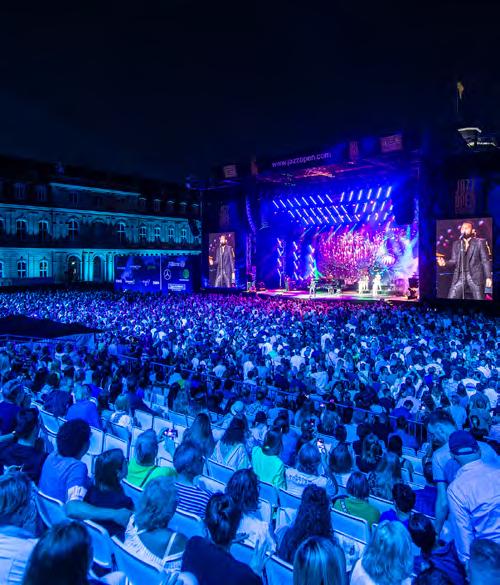 Aia Sound festival
Cala Mijas
Jazzopen Festival
ARTmania
Beatworx
Primavera
Aia Sound festival
Cala Mijas
Jazzopen Festival
ARTmania
Beatworx
Primavera




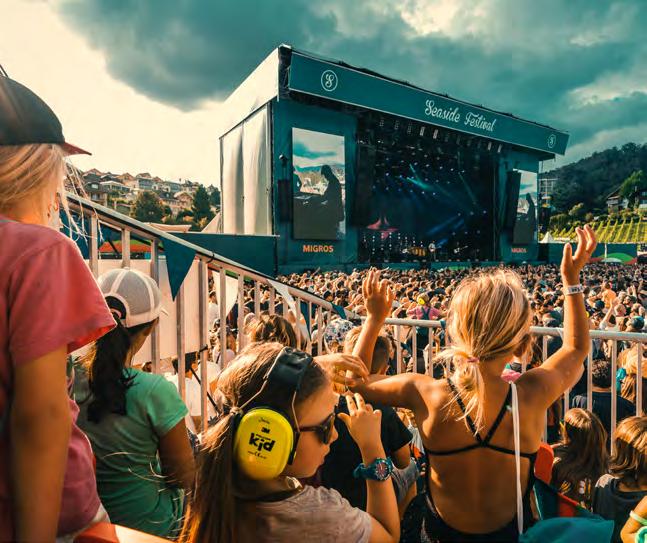 Superbloom Pinkpop
Seaside Festival
Azkena Rock
Superbloom Pinkpop
Seaside Festival
Azkena Rock
In addition to her new role as SVP touring international for Live Nation, Anna Sjölund continues her festival work in Sweden overseeing Summerburst and serving on the board of Sweden Rock Festival. She brought Lollapalooza to Stockholm in 2019, which had a highly successful debut and then the pandemic hit. Here she tells us what it took to get through and looks ahead to the future.

The first Lollapalooza Stockholm was fantastic. We had a great bill ready for the second year and then the pandemic struck. It was really tough for us mentally. In 2021, there was a window where it looked like we could have festivals, so we announced, but then everything closed down again. That was particularly challenging.
I spent my pandemic time – apart from cancelling and moving shows – being one of the leaders of the industry movement that worked with authorities and politicians here. We’re a commercial company and never relied on government funding before. When the pandemic hit, we realised the people that held the crisis funds didn’t even know what the music business was, let alone festivals. So, we came together as an industry and spent time educating politicians about the value of our industry.
We got great support from [tourism organisation] Visit Stockholm. They see the value in Lollapalooza, especially considering that as a first-year festival 15% of our visitors came from outside Sweden (and this year, that increased to almost 19%). Those numbers are important for a city like Stockholm. So, we got funding – not enough to cover our losses but it meant we kept the majority of our team intact, thankfully.
When we finally got to have the festival this year, it was fantastic. We’re so happy that we got support from many of the acts who stayed on the bill and from everyone who came. It was just amazing to come back and do the festival again.
Rock music seems to be coming back at the moment, which I love.
I also think that the ‘experience’ will be increasingly important. A festival is something you attend all day, and we want people to have a great time from early until late. People expect more every year because the ticket prices go up, but we can offer a great experience for everyone. We have
high-end stuff for the people that want that, which means we also can deliver a great product for the kids that saved up their money to come.
Local artists are going to be very important in the coming years because touring costs are up, and the dollar exchange rate is challenging. Having strong local talent that attracts a local audience means you don’t have to programme only the very expensive international talent. We’re in a great position for that because we have very strong local talent in Sweden.
Staffing, production costs, and the dollar exchange rate. We’re aiming to improve the staffing issue by launching a trainee programme, which will see people working on our festivals on six- to 12-month contracts; we’ll train and pay them. We’re focusing the recruitment outside our standard channels because we want new people. They aren’t obliged to stay with us after the programme, but I hope they will.
Together with Spotify we are the main partners to IFPI on You+ Music, an initiative for youth from urban areas of Sweden. The aim is to open the door and inspire young people with a love of music to work with it – they’ve heard you can be an artist, producer, promoter, or manager – we’re showing them how to get there.
Festivals have a huge role in people’s lives. Live music is very important for many reasons, but festivals in particular, because now more than ever, we need places where we gather and enjoy things together, no matter our background or our political views.
With Lollapalooza, we have people travelling from all over the world to come to Stockholm, and we’re showing the best we have here, so festivals are a great way to showcase your culture.
Finally, festivals employ so many people, from cleaning squads to food sellers, and that’s really important. You’re putting together teams of people who don’t know each other. And it’s a great way to integrate and find communities together.
AUSTRIA
Electric Love Festival
Frequency Festival
LNR LND – Lunar Landing Nova Rock Shutdown Festival Szene Open Air Global Event Technologies

BELGIUM
Dour Festival Pukkelpop Rock Werchter
BULGARIA
Sofia Live Festival

CROATIA InMusic Festival
CZECH REPUBLIC Colours of Ostrava Rock for People
DENMARK
Aarhus Festuge
AiaSound Festival NorthSide Festival Roskilde Festival Smukfest
FINLAND Flow Festival Ilosaarirock Porijazz Provinssi Qstock Festival Ruisrock
Sideways Festival
Tuska Open Air Metal Festival
FRANCE
Insane Festival
Le Printemps de Bourges
Les Eurockéennes de Belfort
Les Rencontres Trans Musicales de Rennes MaMa Music & Convention Rock en Seine We Love Green
Le Laba
GERMANY
Das Fest
Deichbrand Festival
Feel Festival Full Force
Haldern Pop Festival Happiness Festival Juicy Beats Festival Kessel Festival
Maifeld Derby Melt Festival Nature One Parookaville Reeperbahn Festival Rocco del Schlacko Rock am Ring Rock im Park Splash! Festival Stadtpark Open Air Summer Breeze Open Air Superbloom Festival Taubertal-Festival Wacken Open Air Höme – Für Festivals
Future Of Festivals The Competence Network
GREECE Athens Rocks Rock Wave Festival
HUNGARY Sziget Festival HOTS (Hungarian Oncoming Tunes)
ITALY Comfort Festival Home Festival Sudwave Festival
KOSOVO Sunny Hill Festival
LATVIA Positivus Festival LITHUANIA 8 Festival LUXEMBOURG Siren’s Call
MACEDONIA
Taksirat Festival
NORWAY Bergenfest by:Larm Oslo Sommertid Øyafestivalen Slottsfjell Festival
POLAND
Kraków Live Festival Off Festival Open’er Festival Orange Warsaw Festival
ROMANIA Artmania Festival Electric Castle Jazz in the Park Saga Festival Untold Festival
RUSSIA Wild Mint
SERBIA Arsenal Fest Exit Festival Lovefest
SLOVAKIA Grape Festival Pohoda Festival
SLOVENIA MetalDays Festival
SPAIN Bilbao BBK Live Primavera Sound FMA – Asociación de Festivales de Música
SWEDEN Department Festival Malmöfestivalen Popaganda Way Out West
Baloise Session
Festi‘neuch Neuchâtel Greenfield Festival
Gurten Festival Berne Heitere Open Air Montreux Jazz Festival Open Air Gampel OpenAir St. Gallen Paléo Festival Nyon Seaside Festival Stars in Town Summerdays Festival Winterthurer Musikfestwochen
Zermatt Unplugged
THE NETHERLANDS
Down The Rabbit Hole Dynamo Metal Fest ESNS Lowlands Pinkpop MovendiuM
UK A Greener Festival International Live Music Conference (ILMC)
UKRAINE Atlas Festival
www.yourope.org